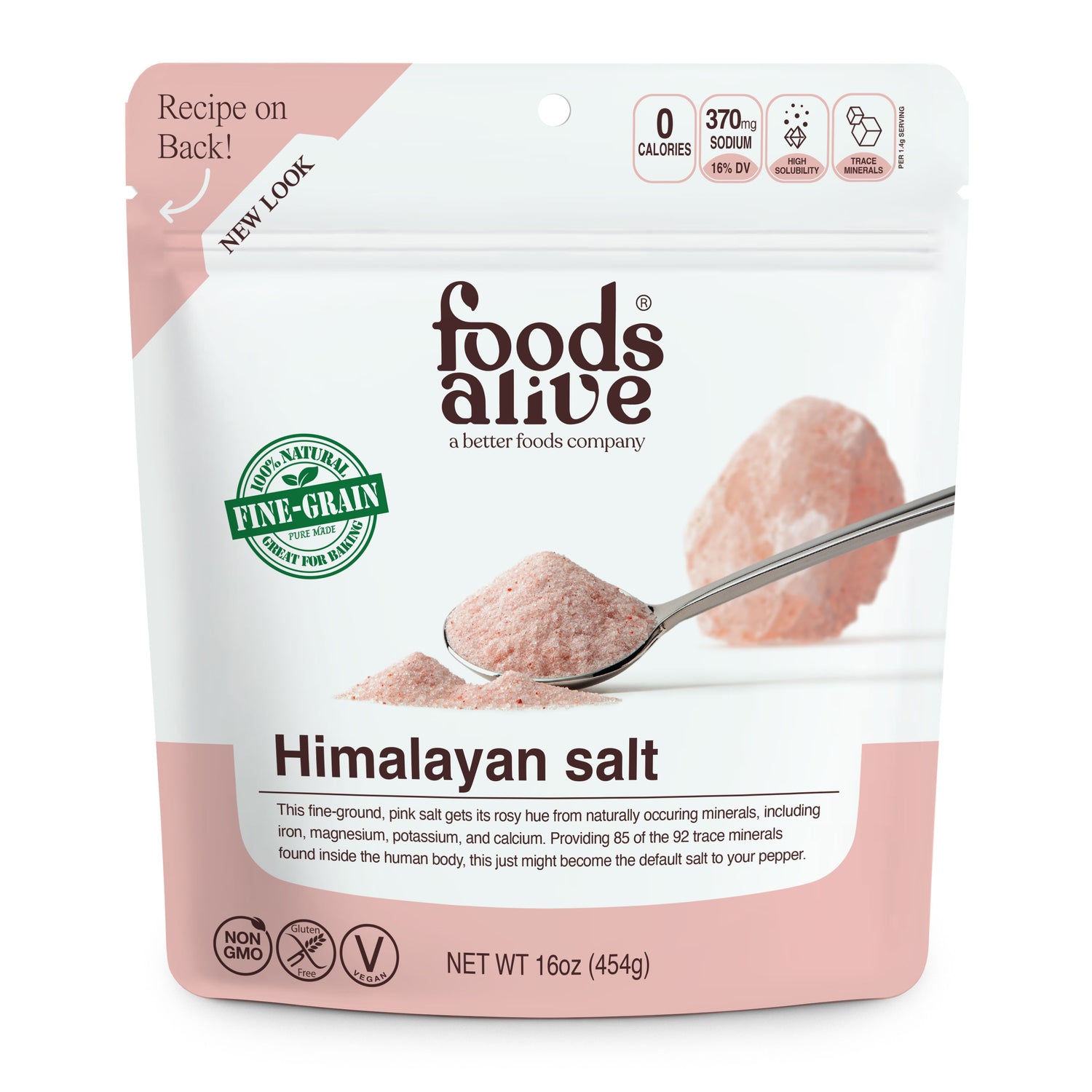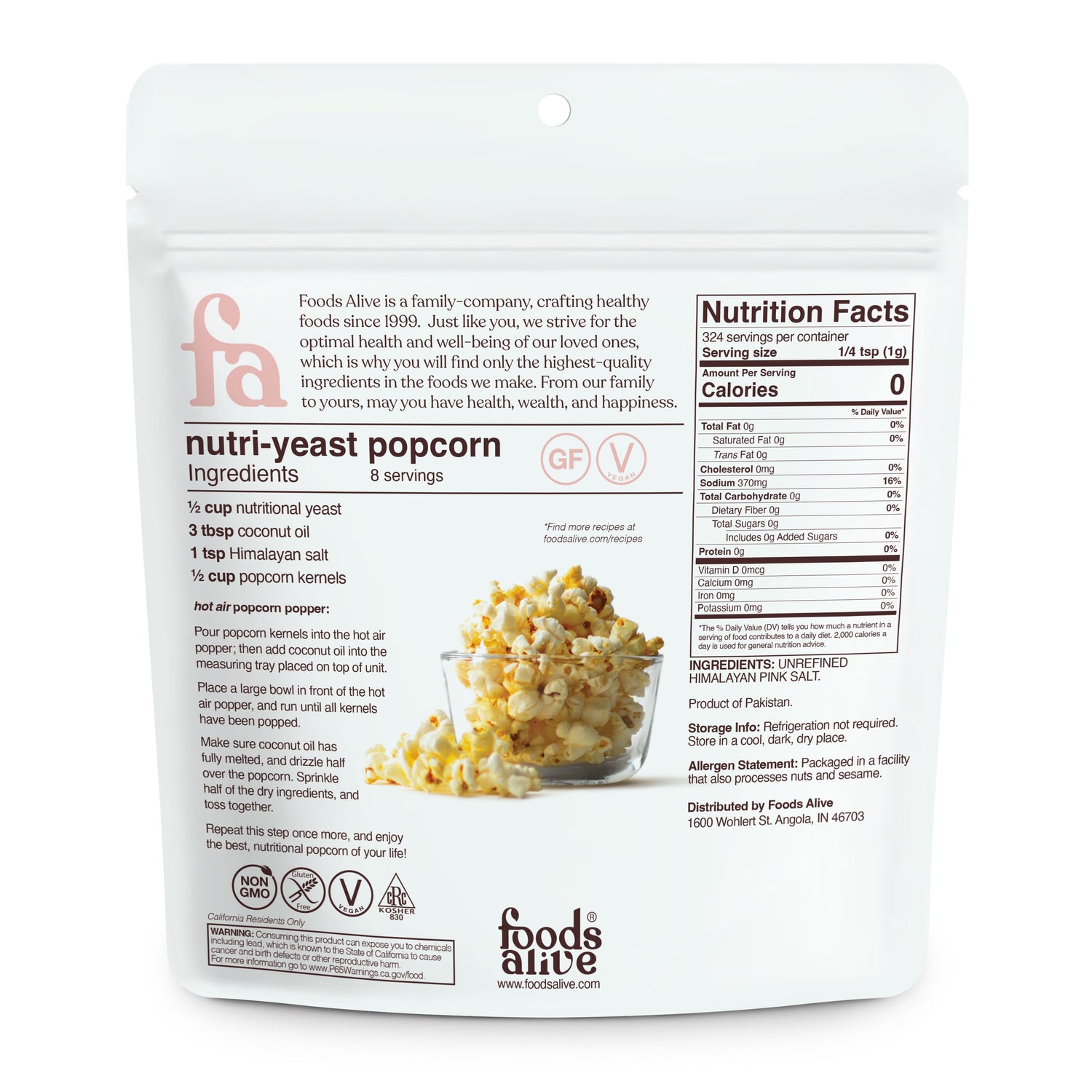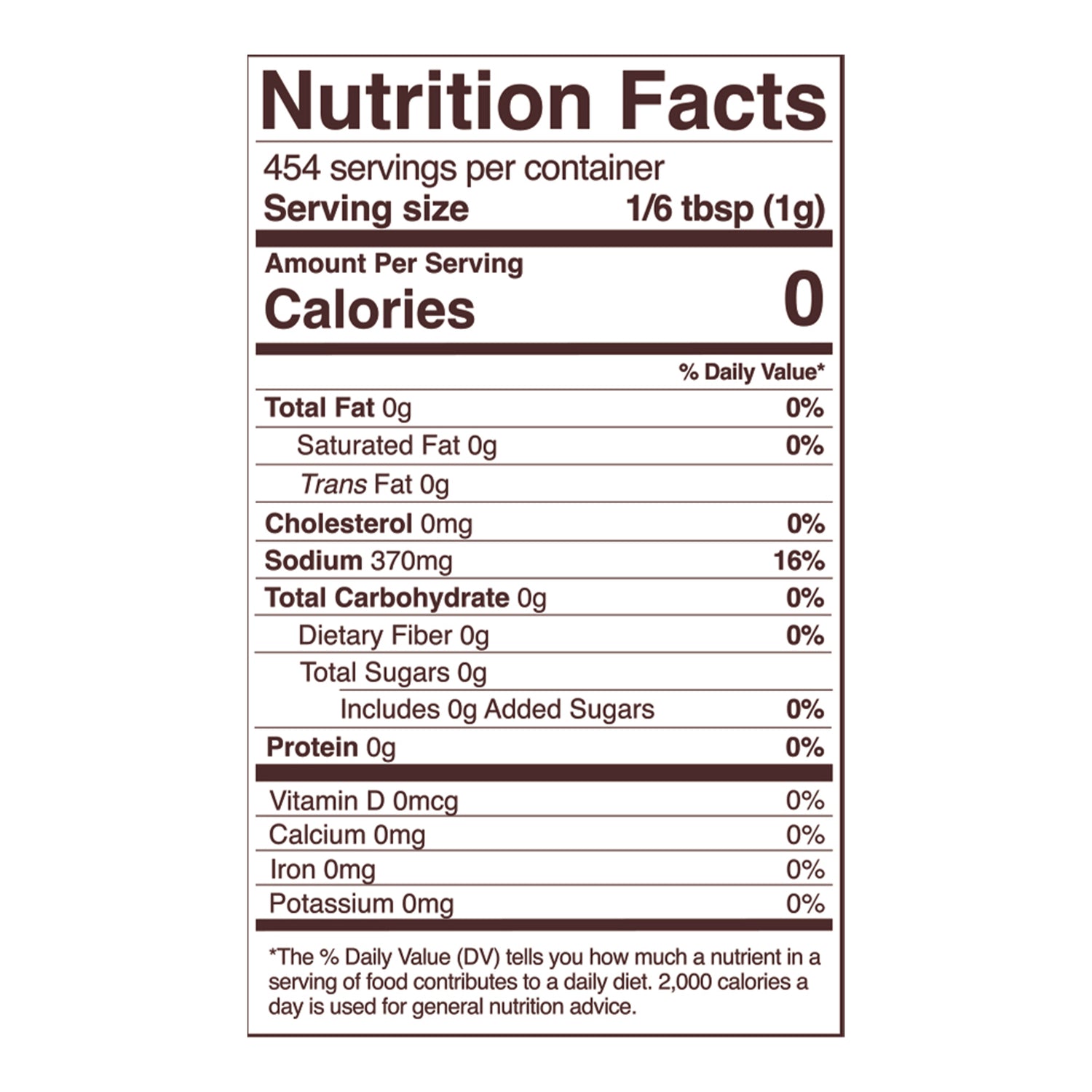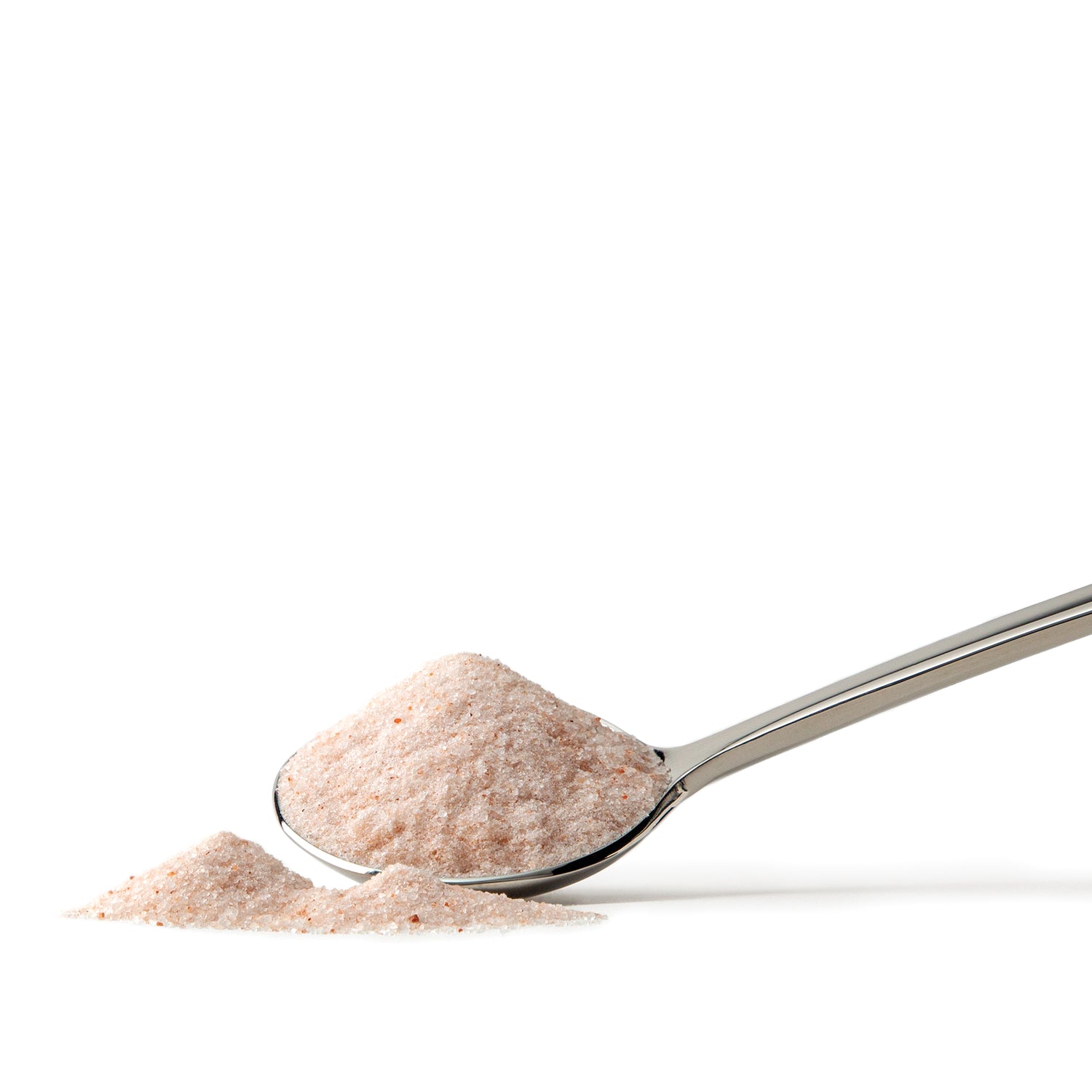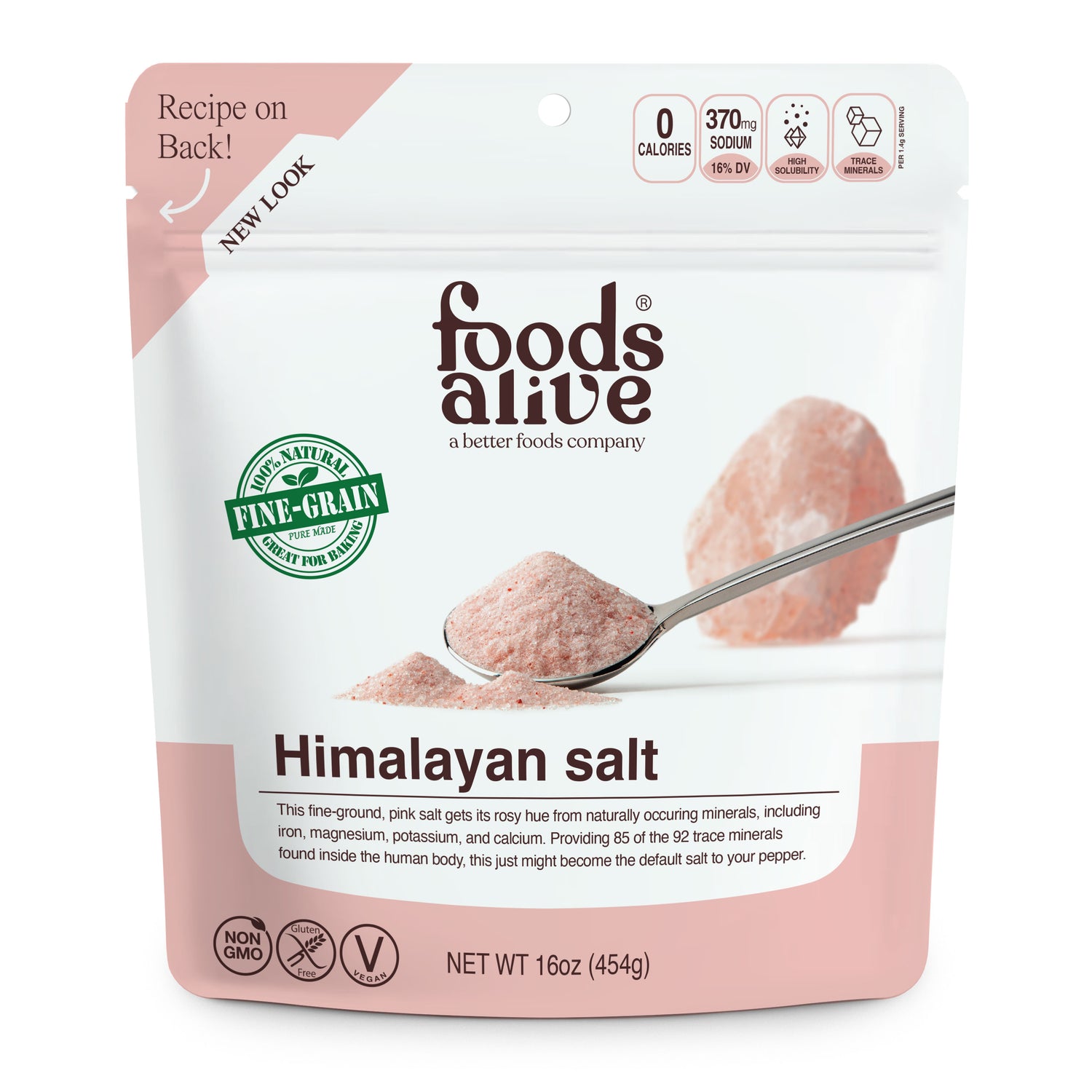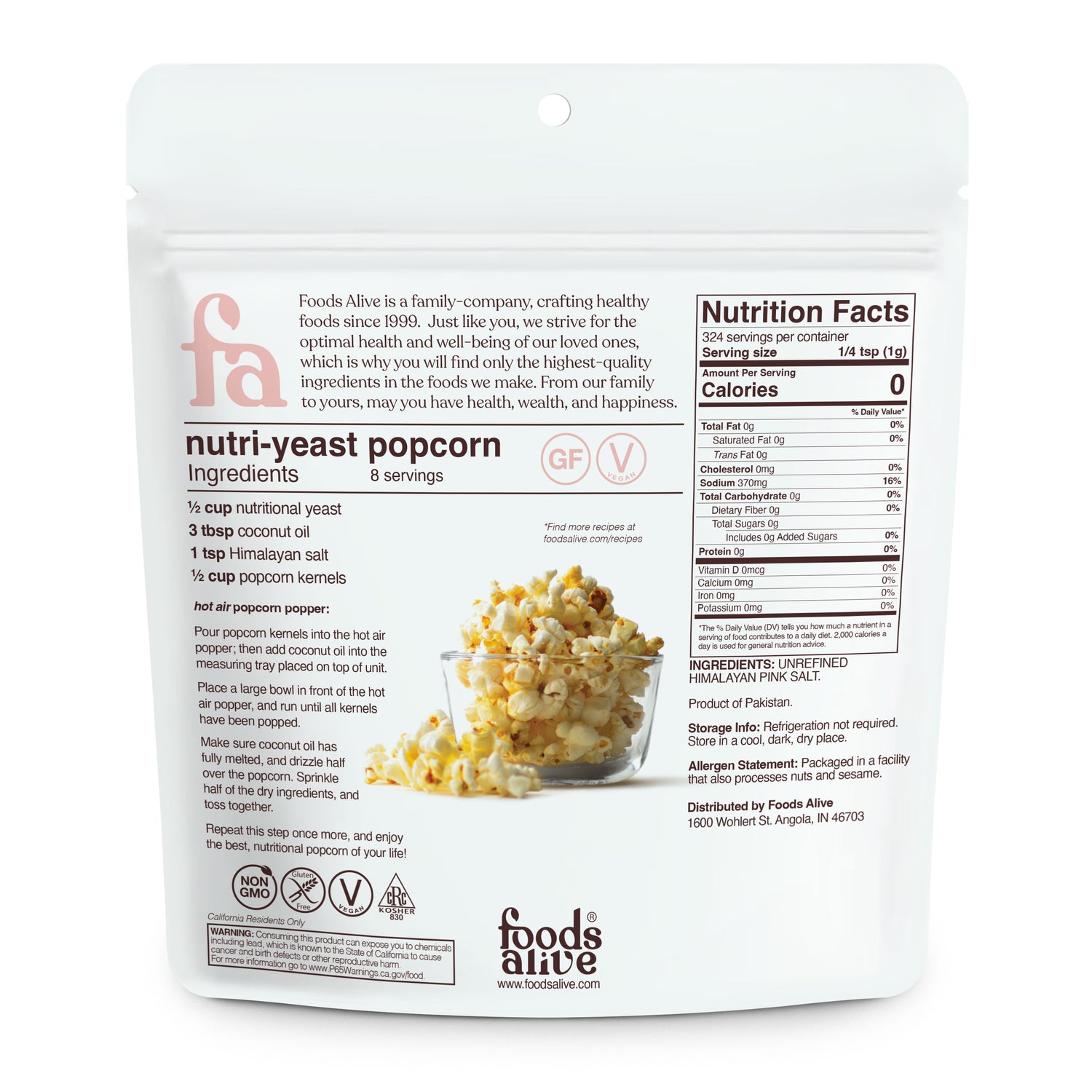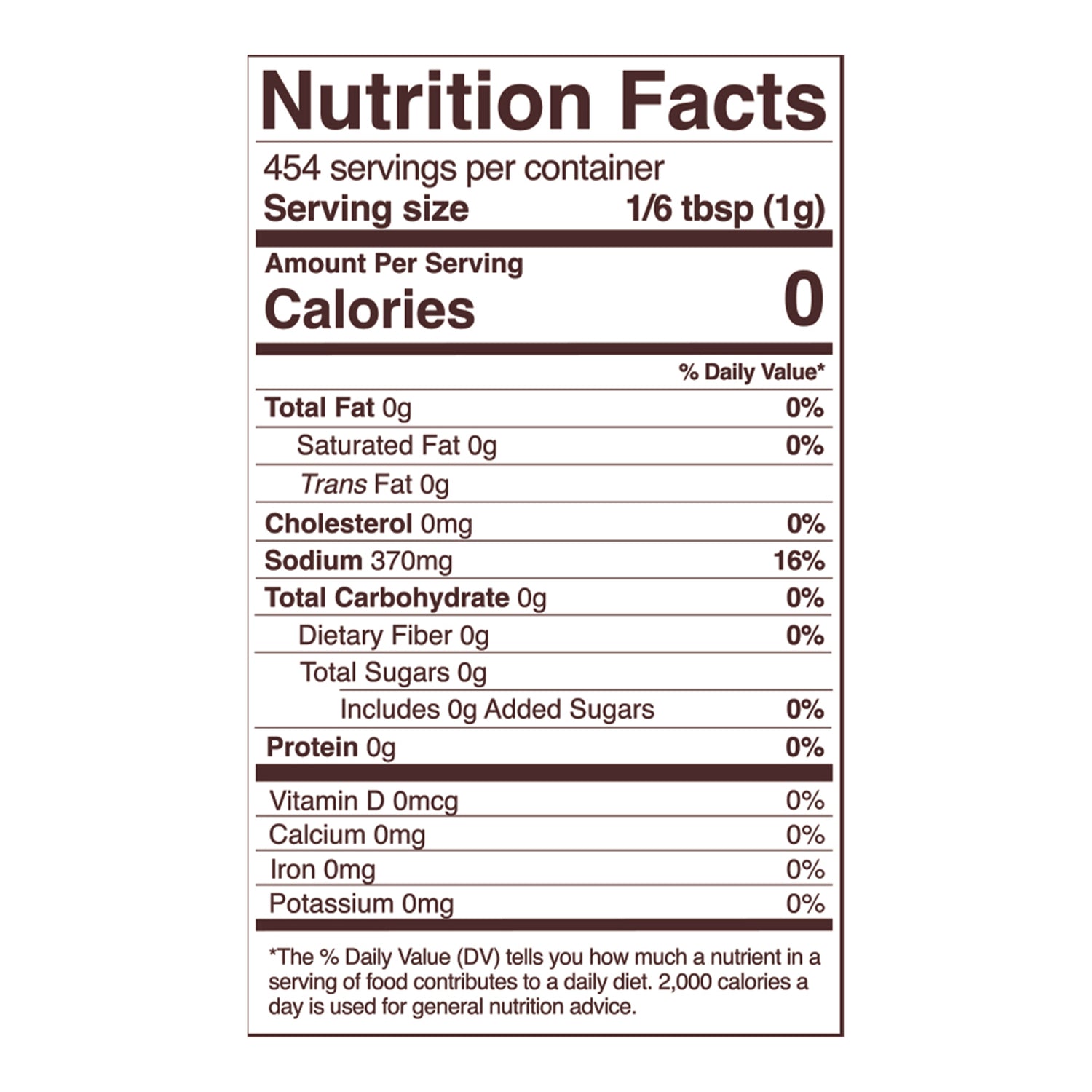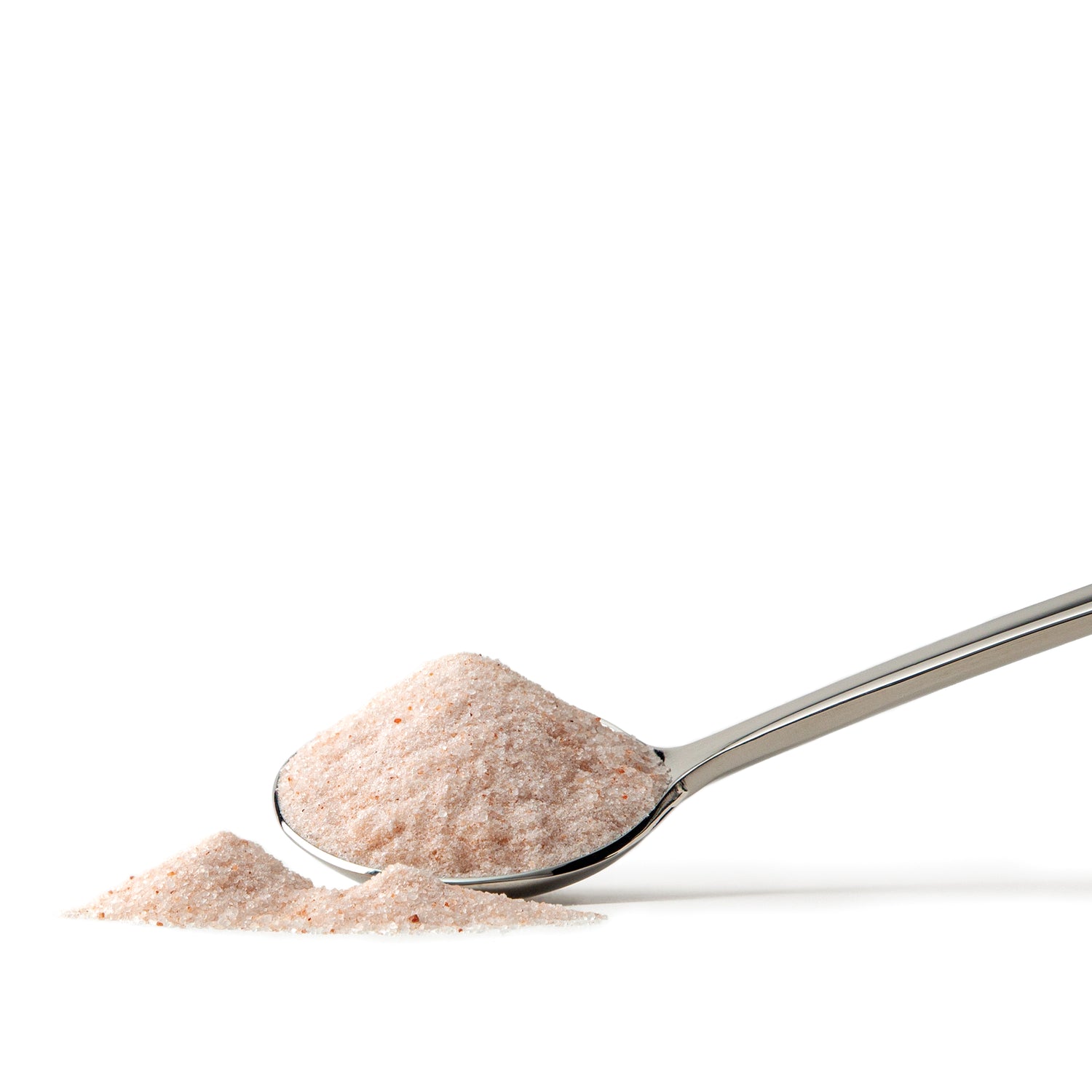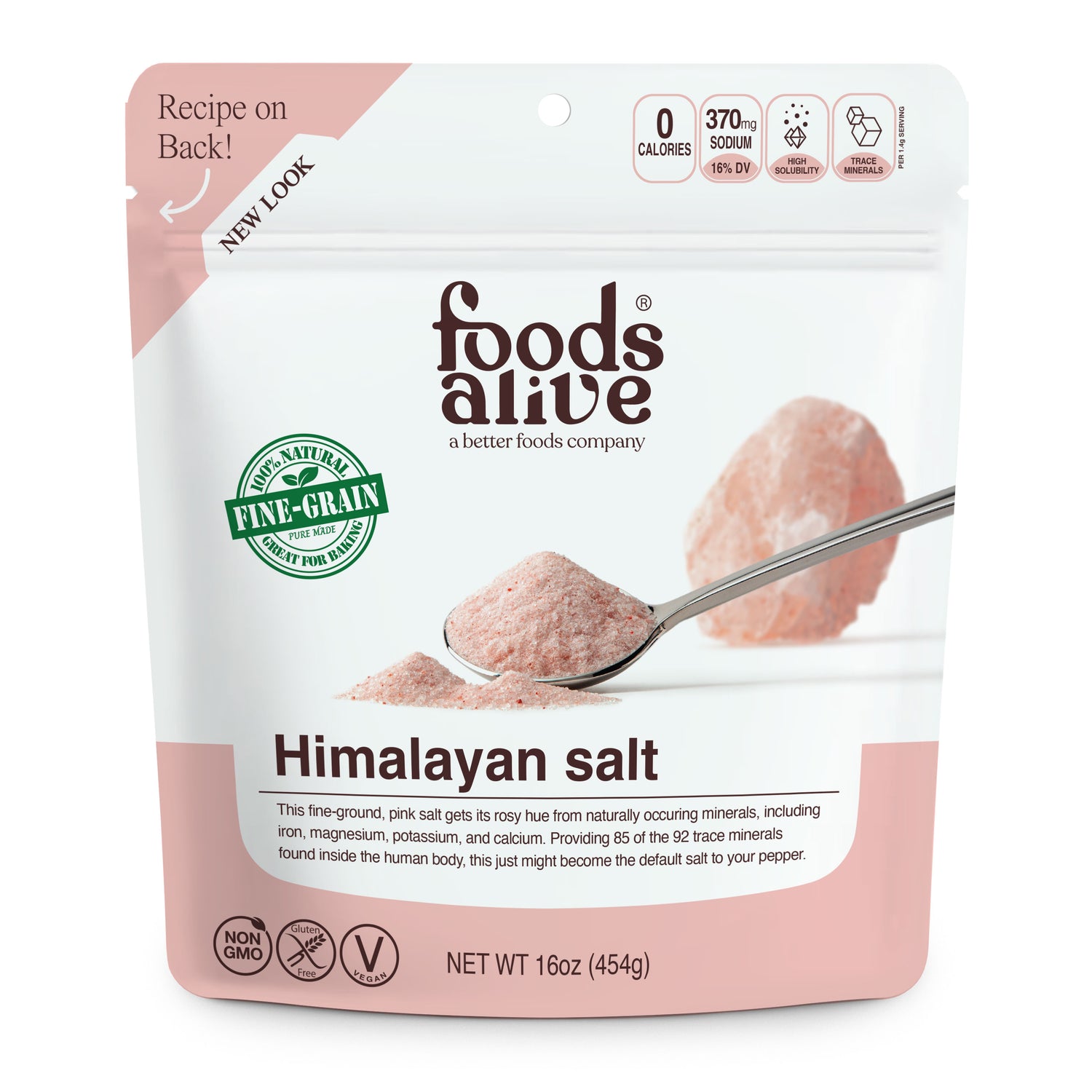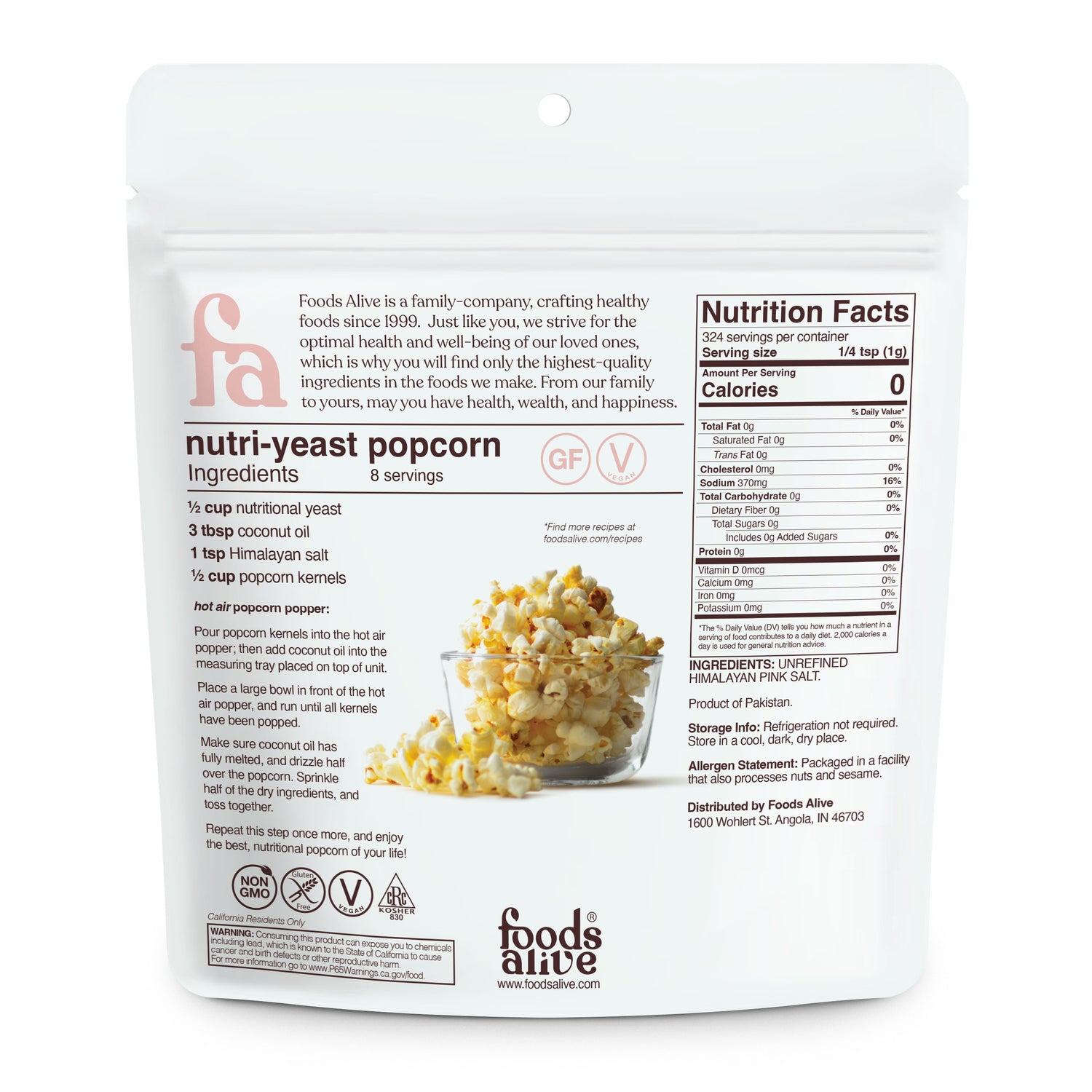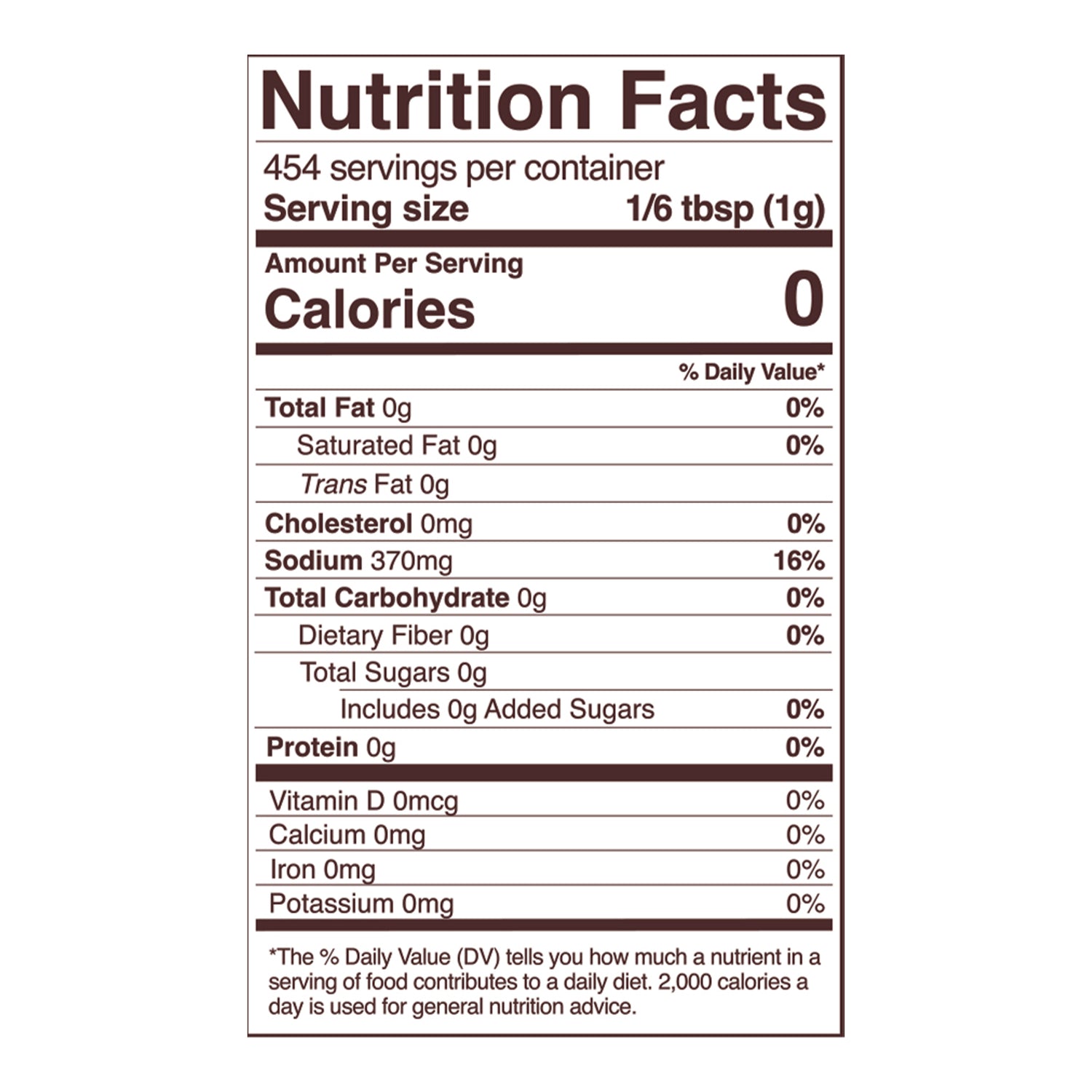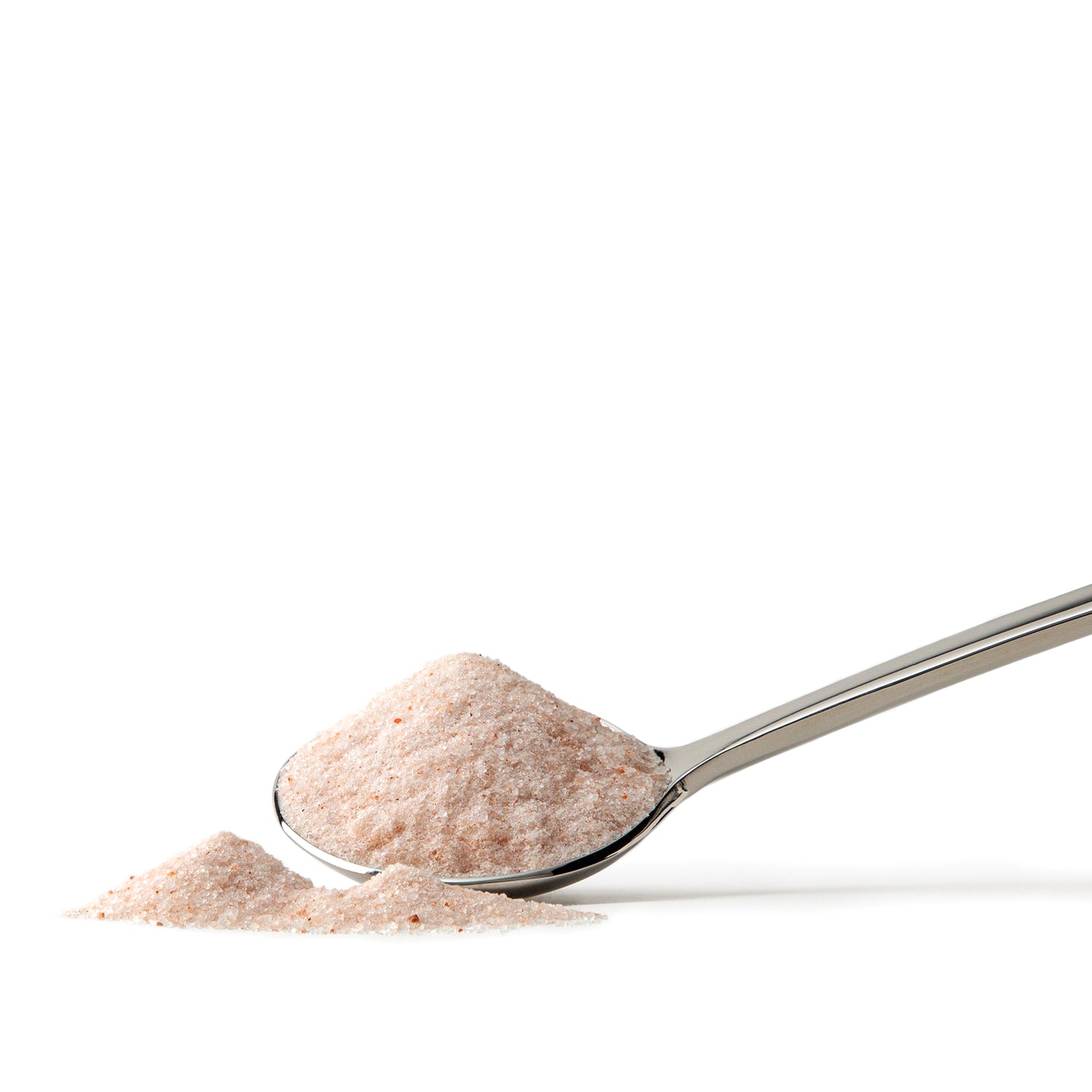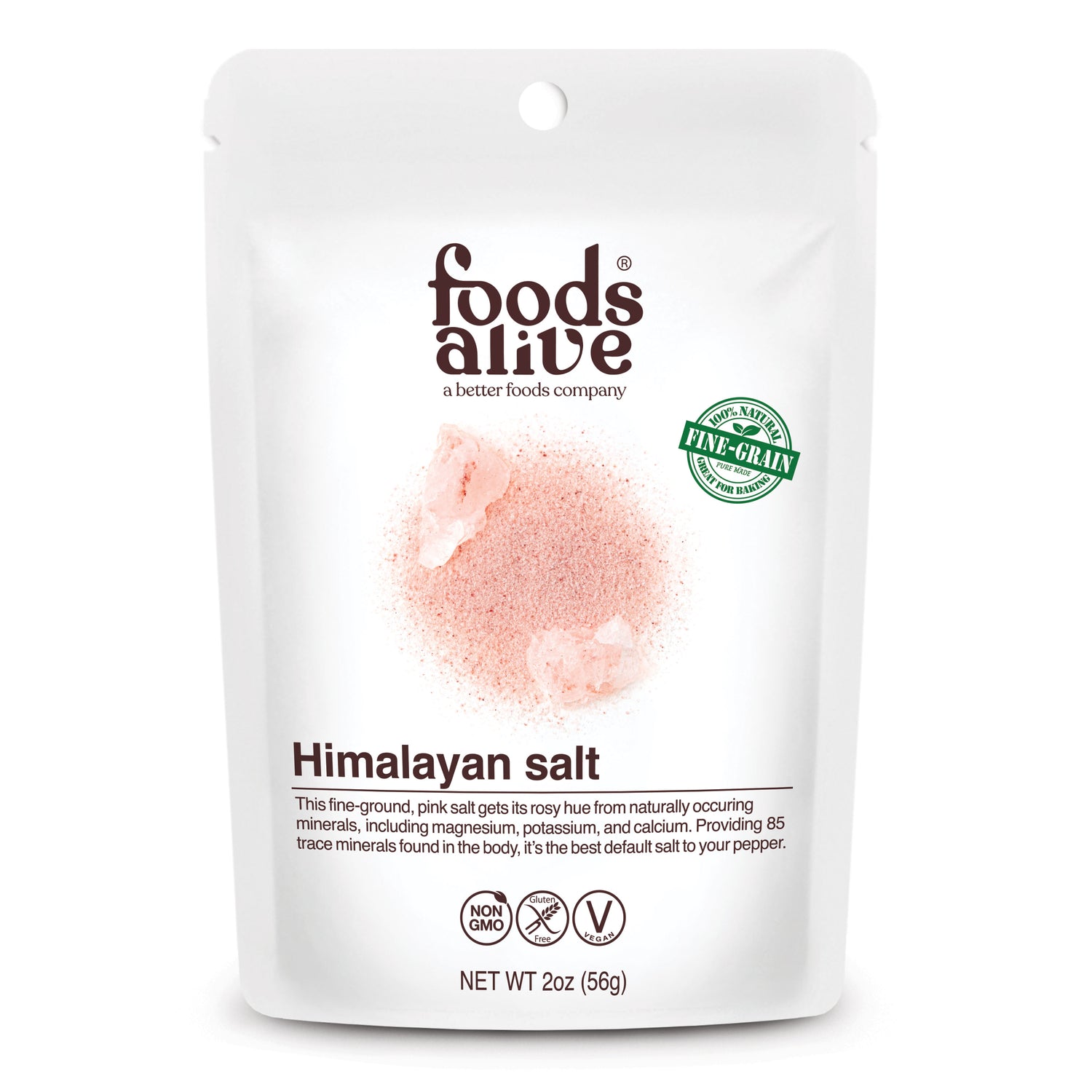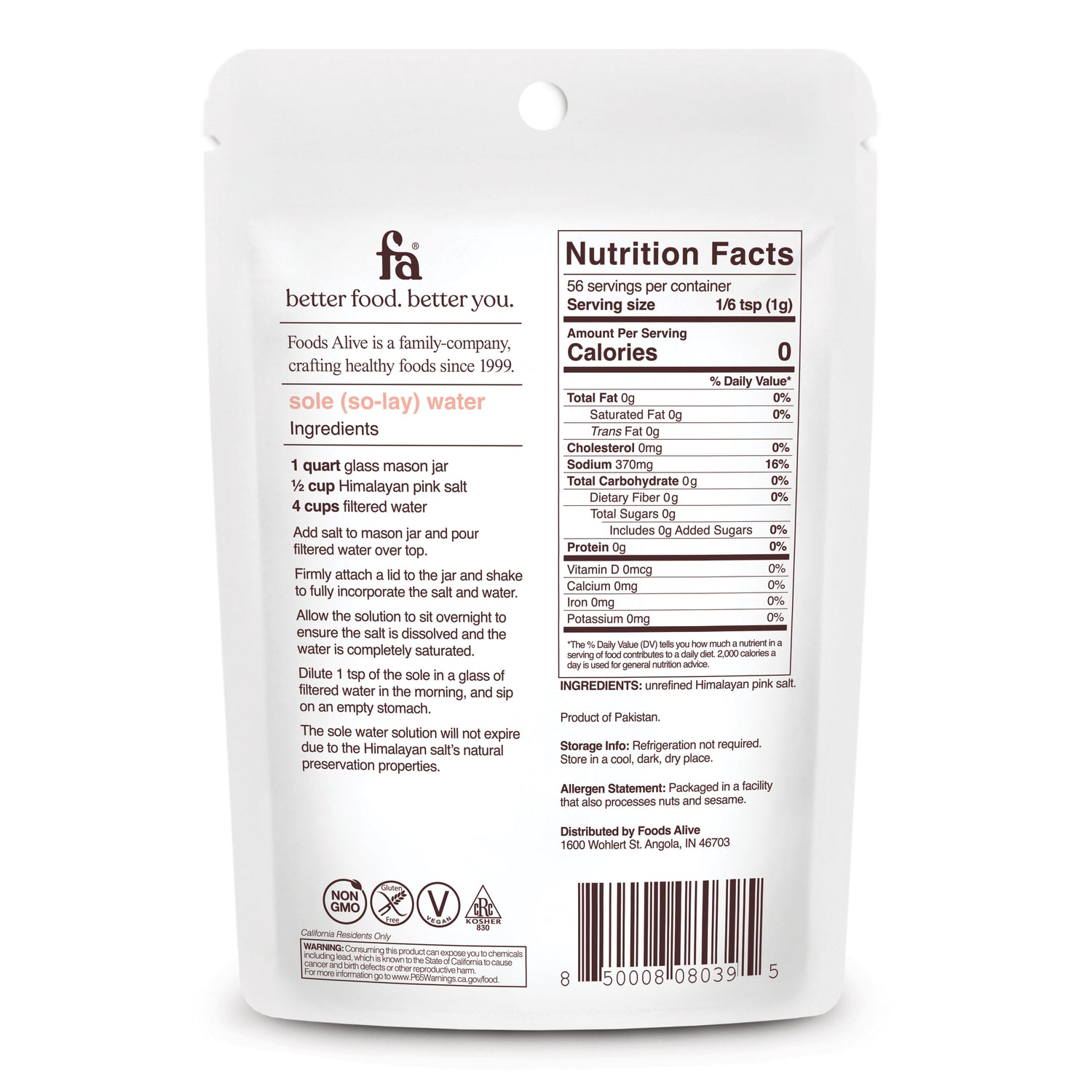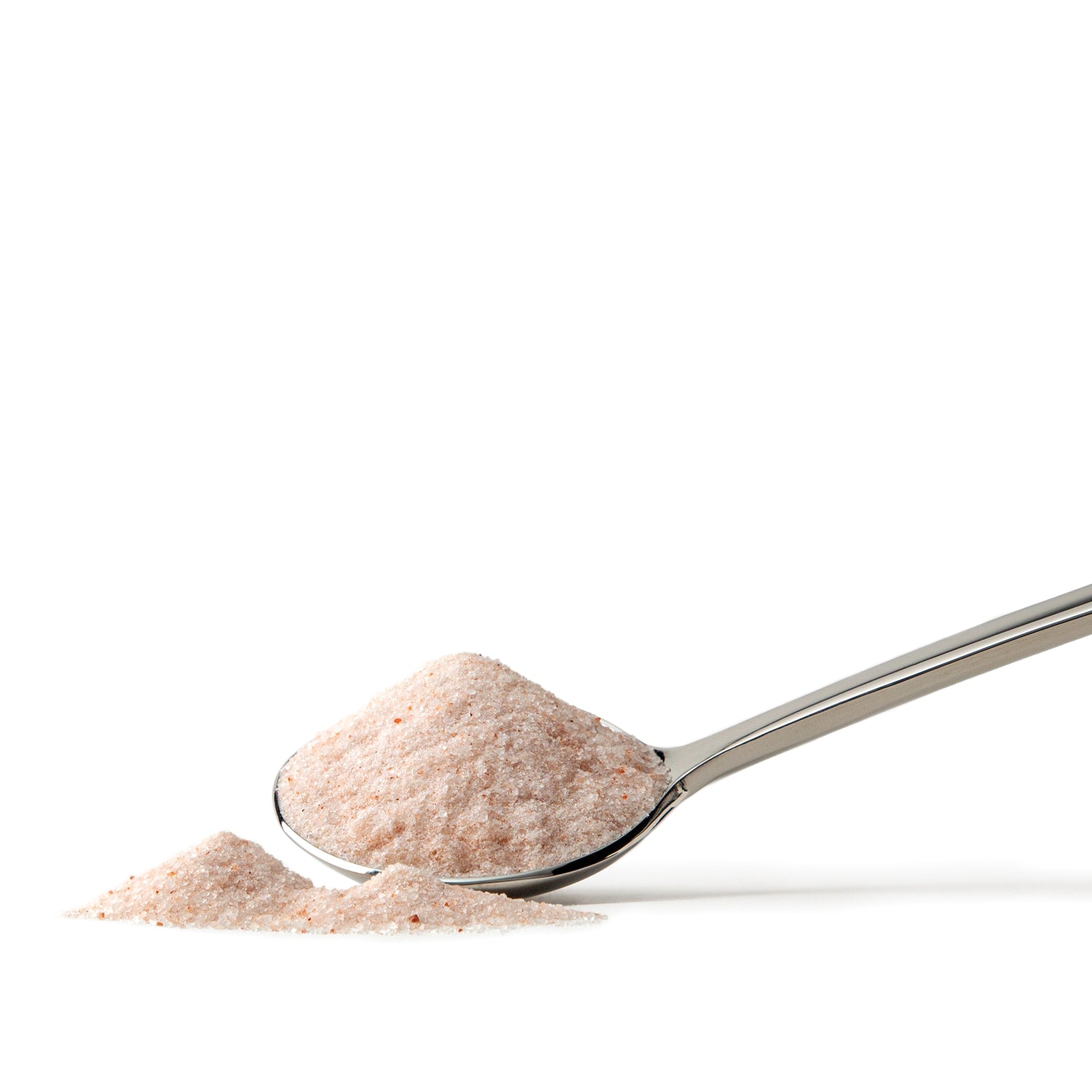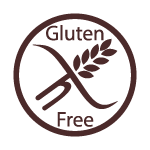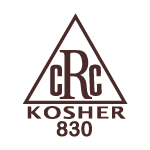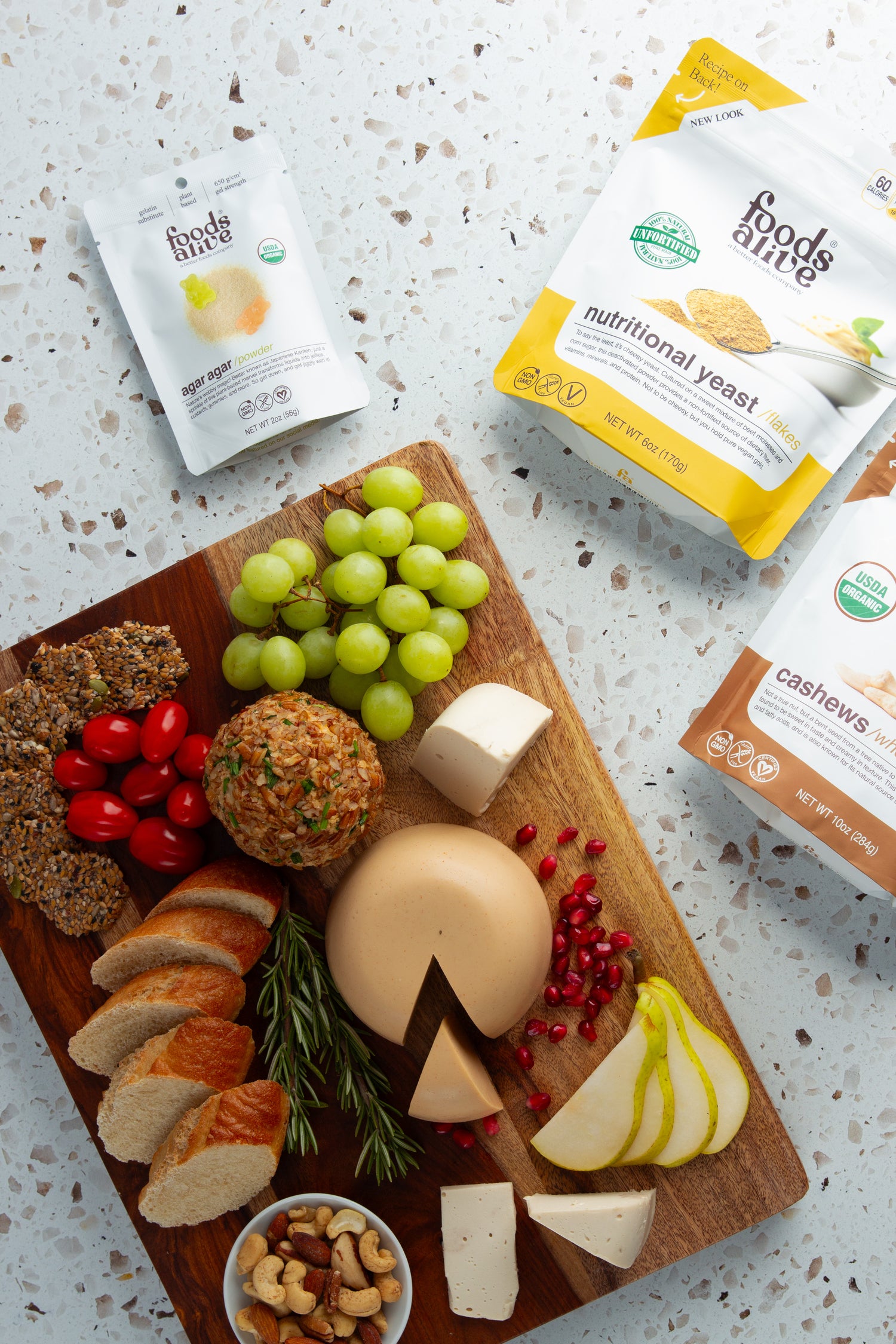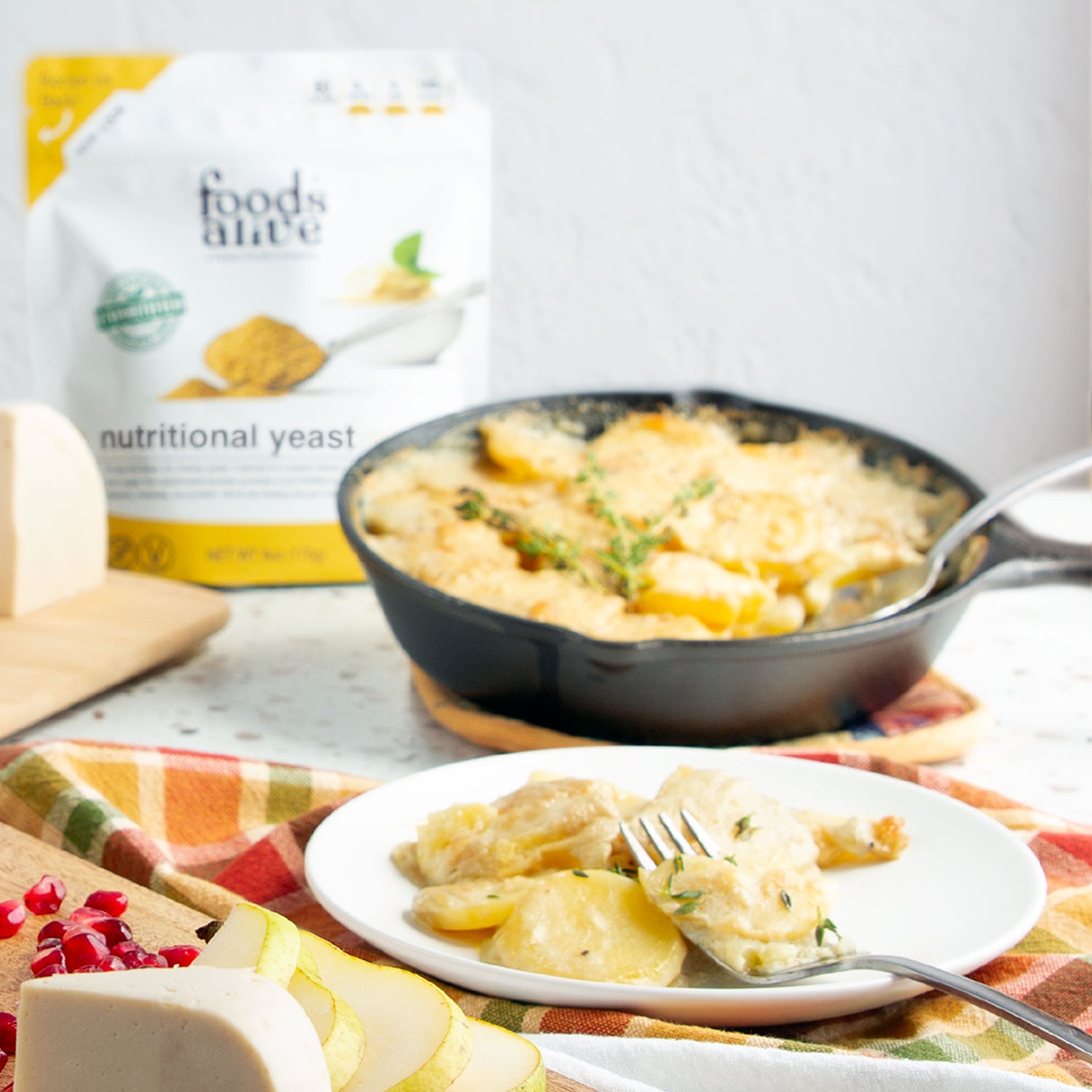
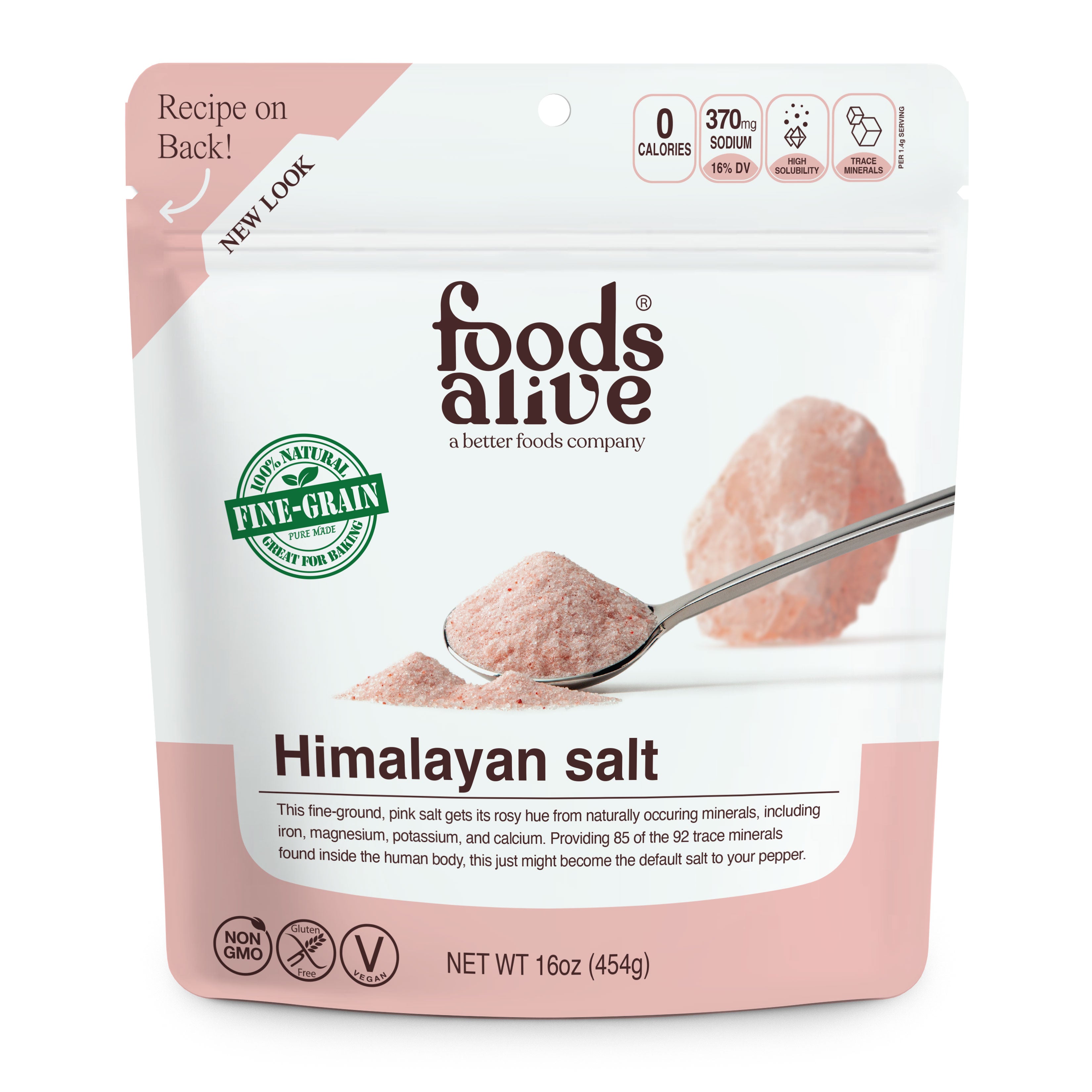
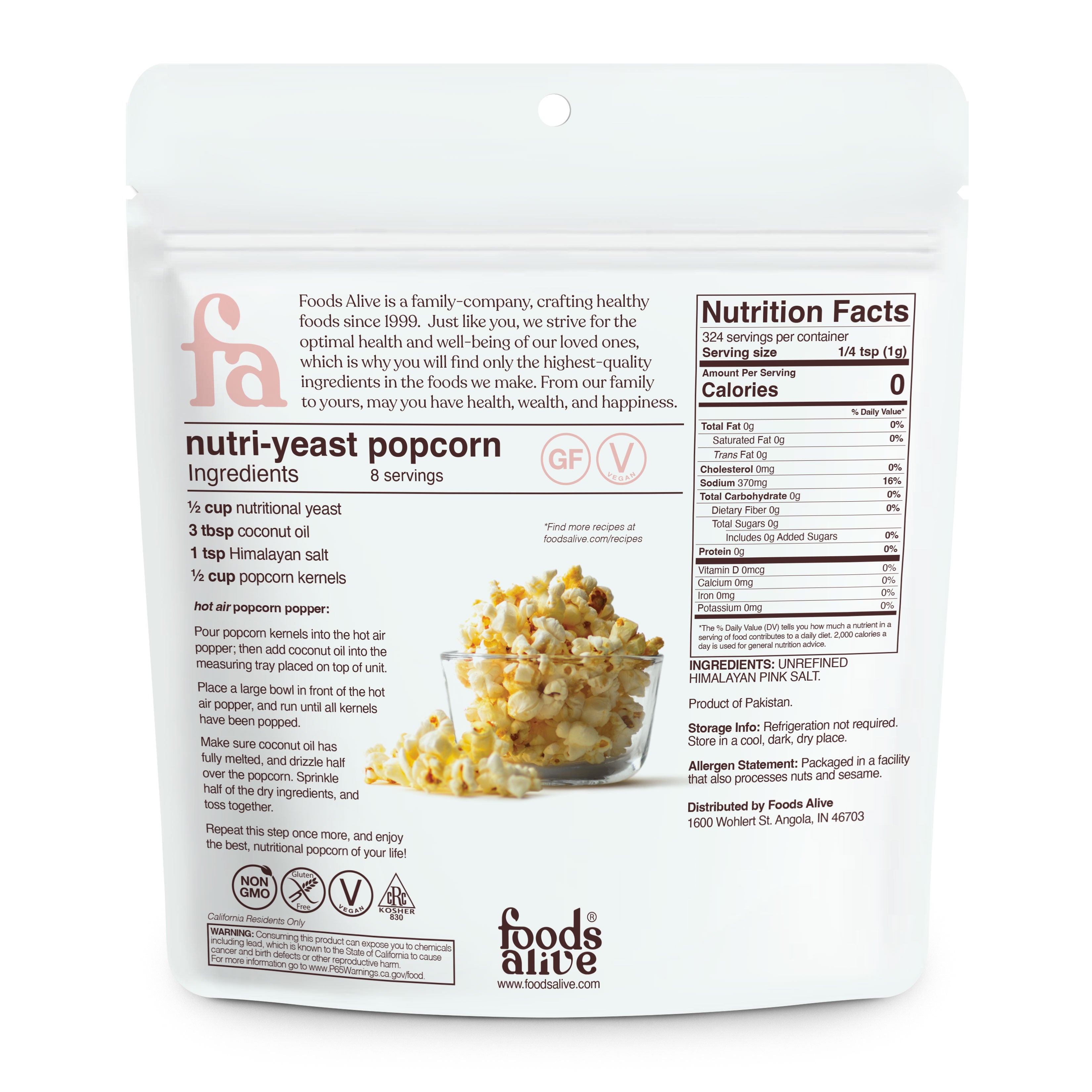
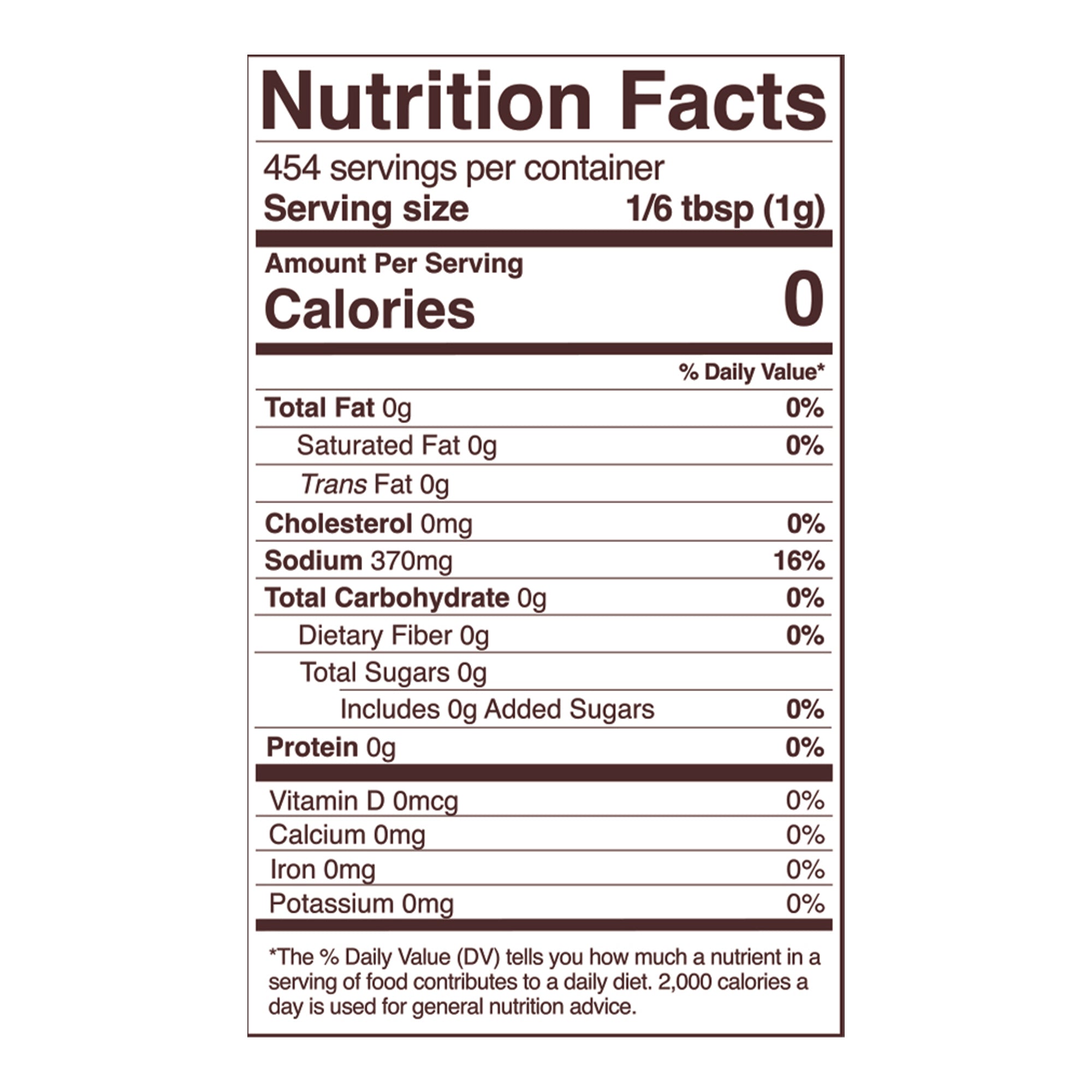
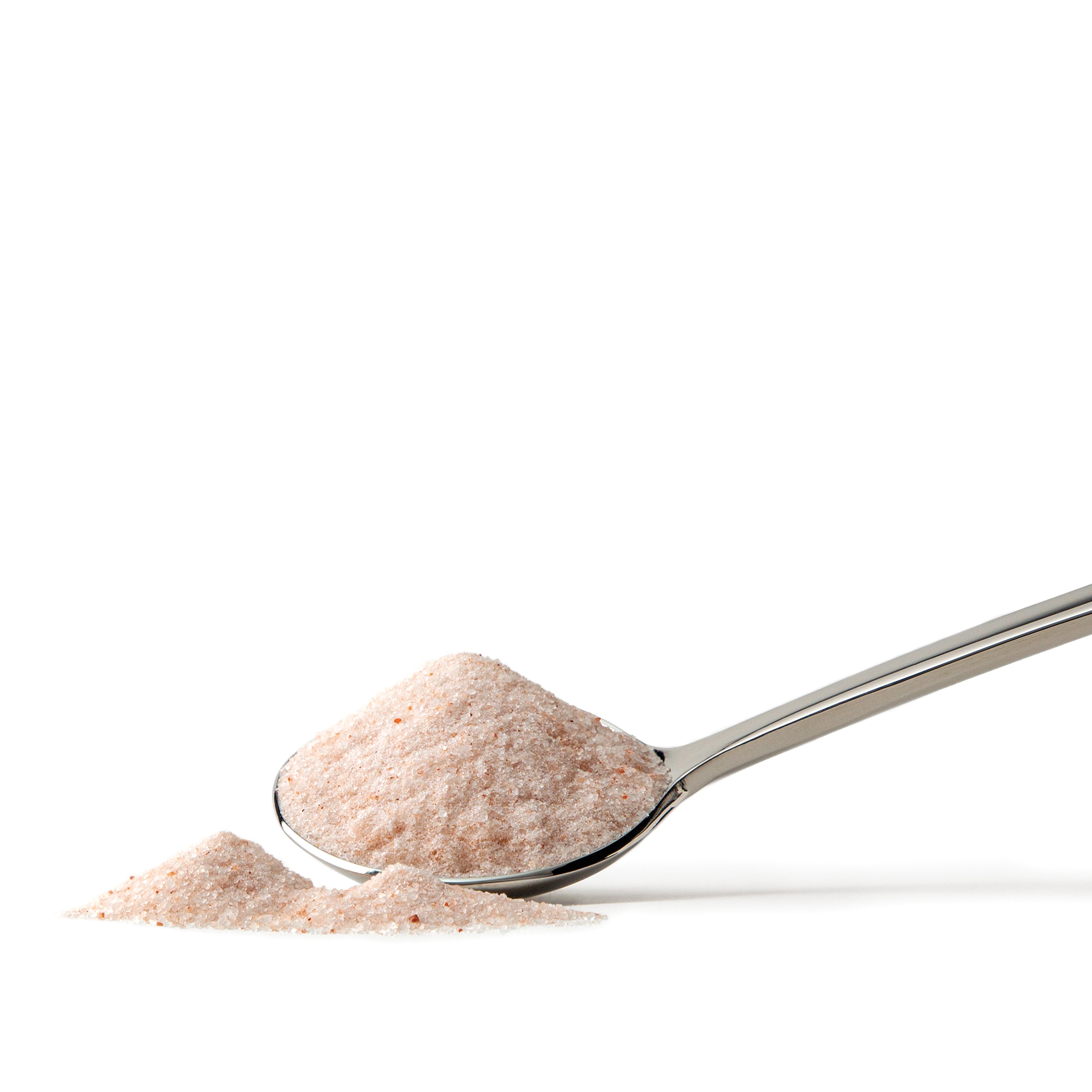
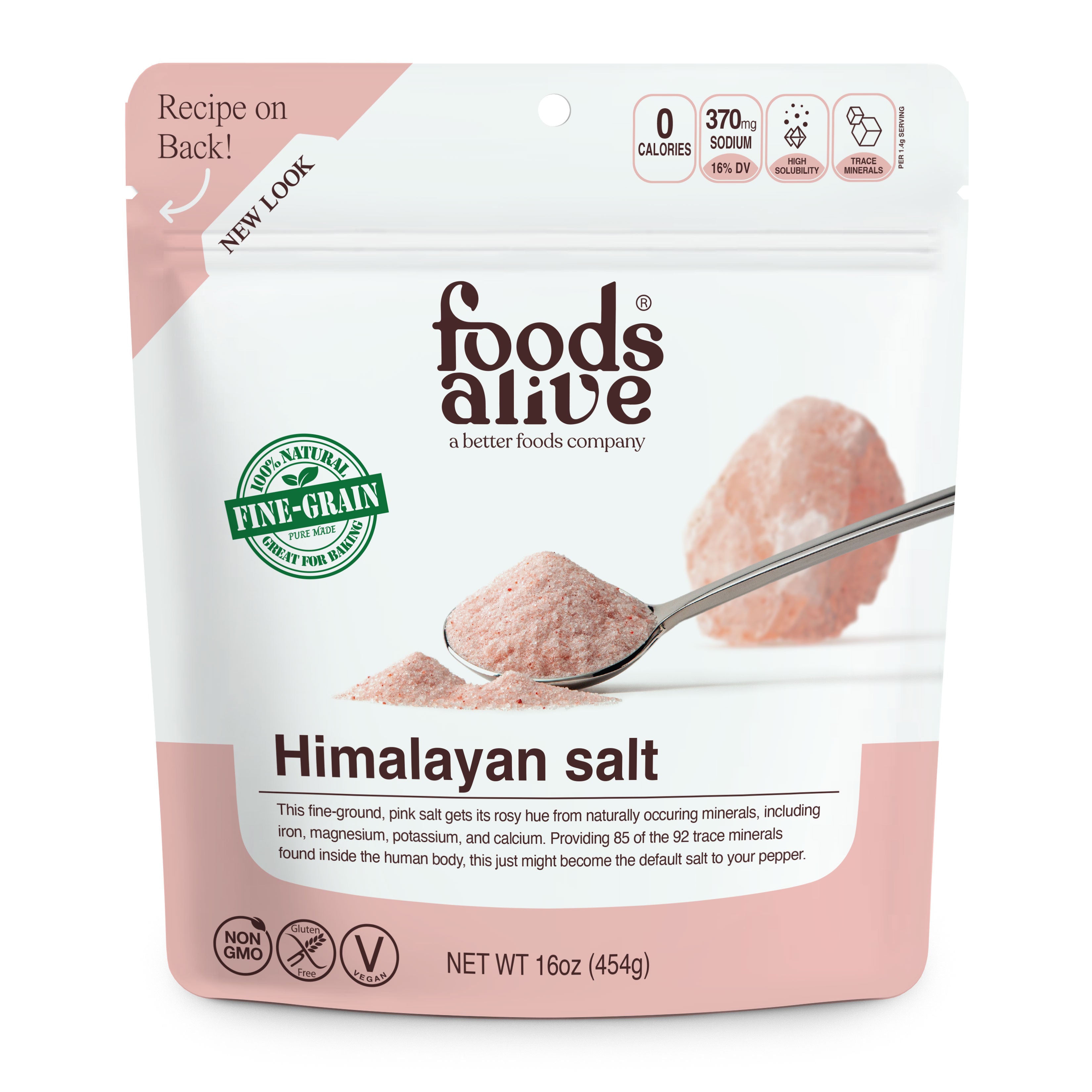
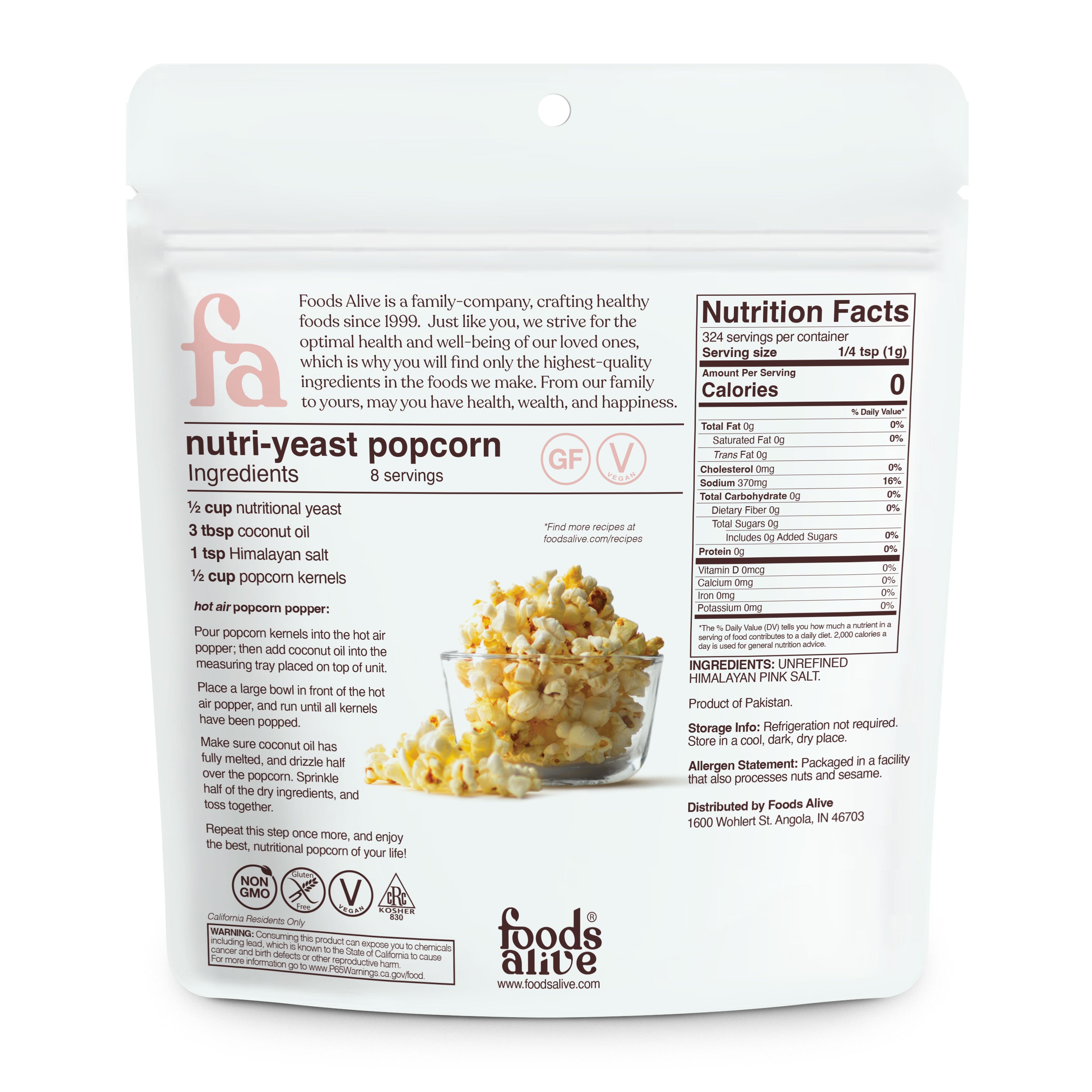
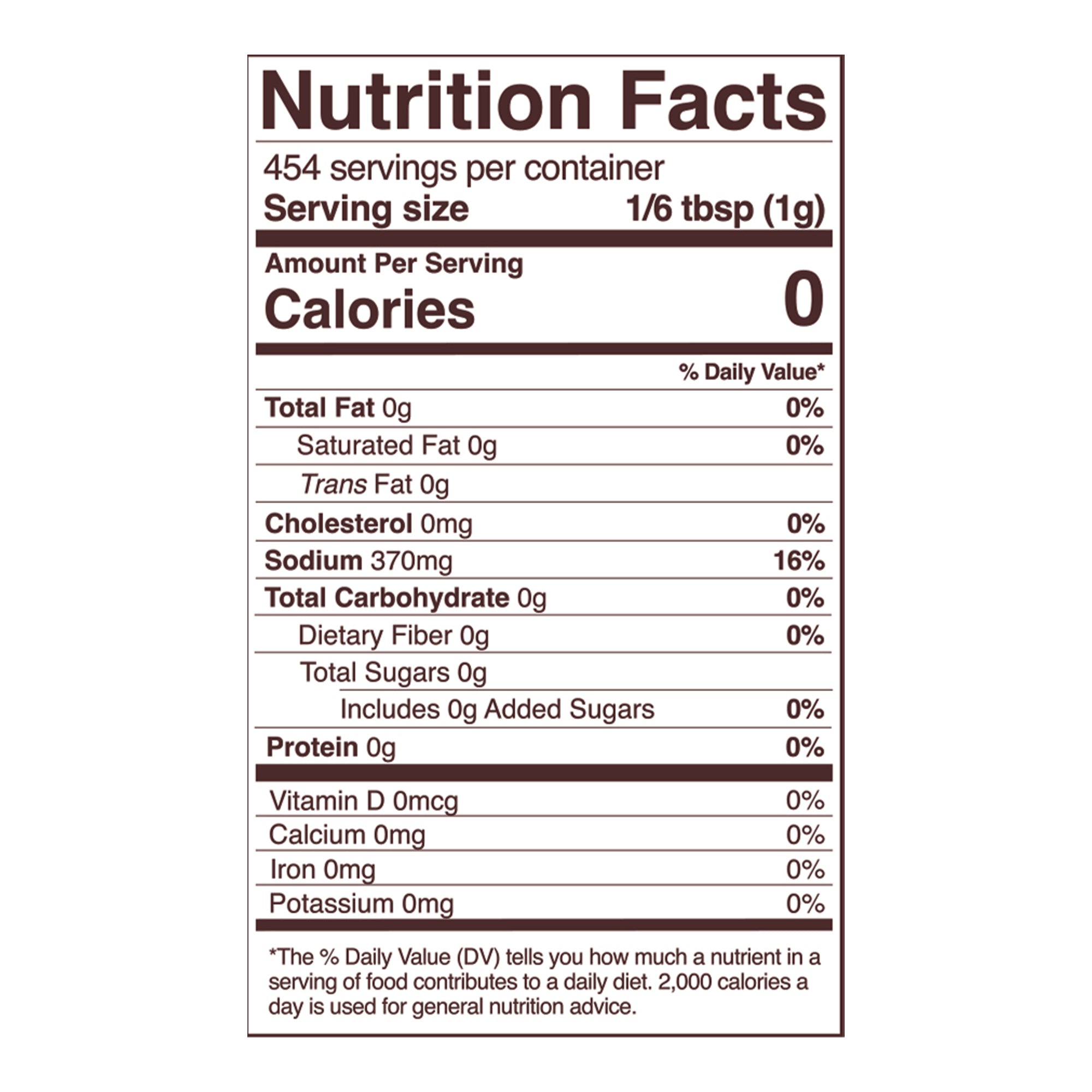
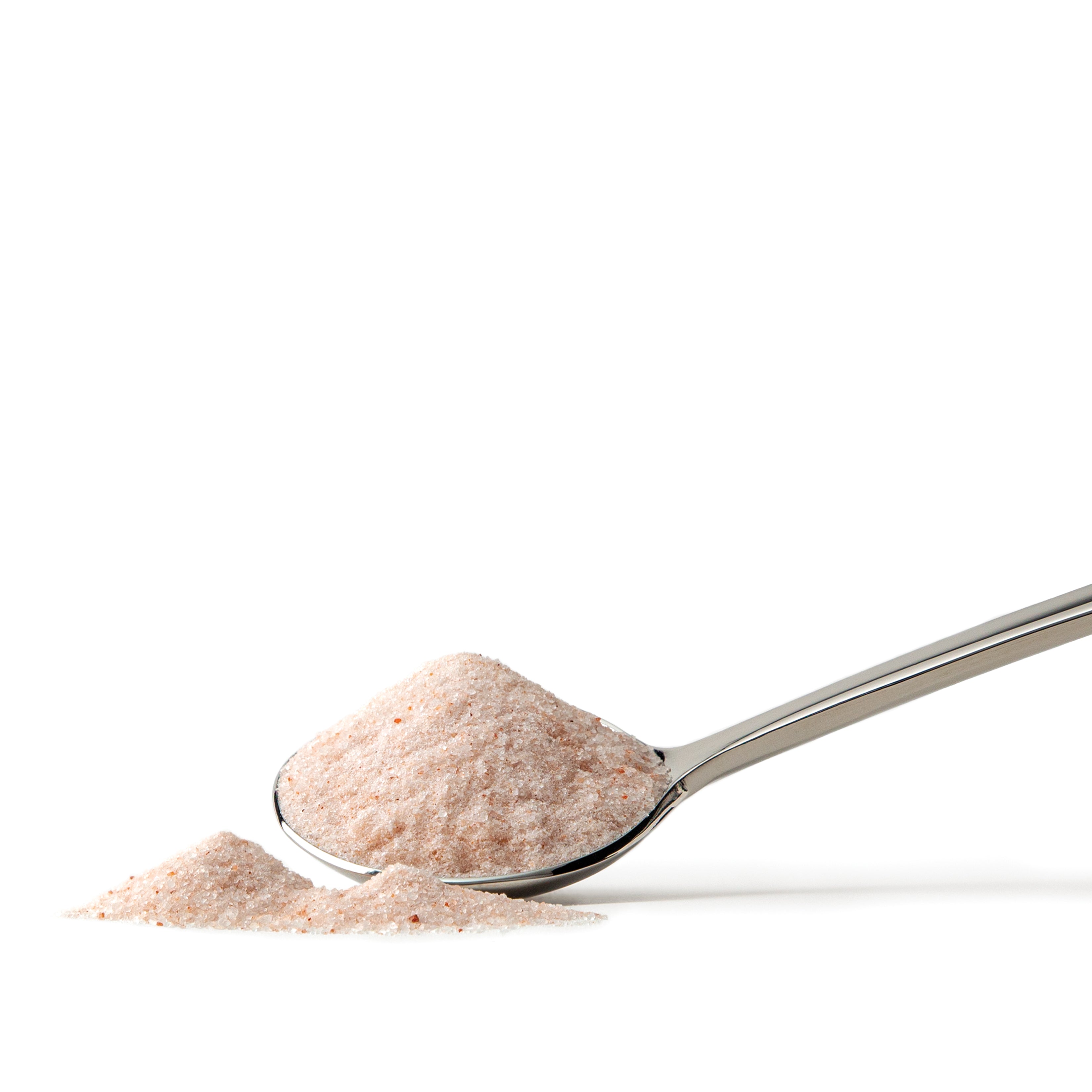
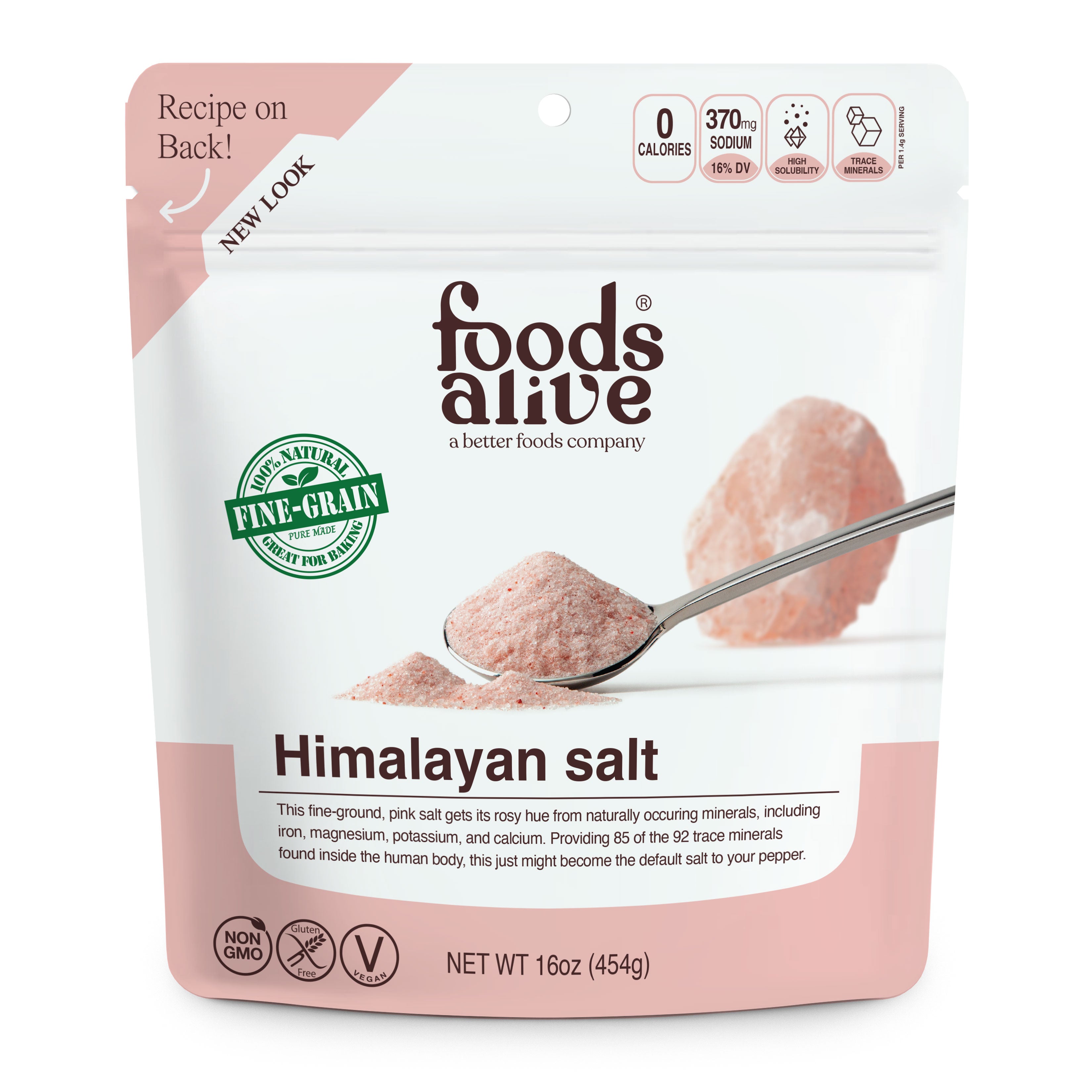
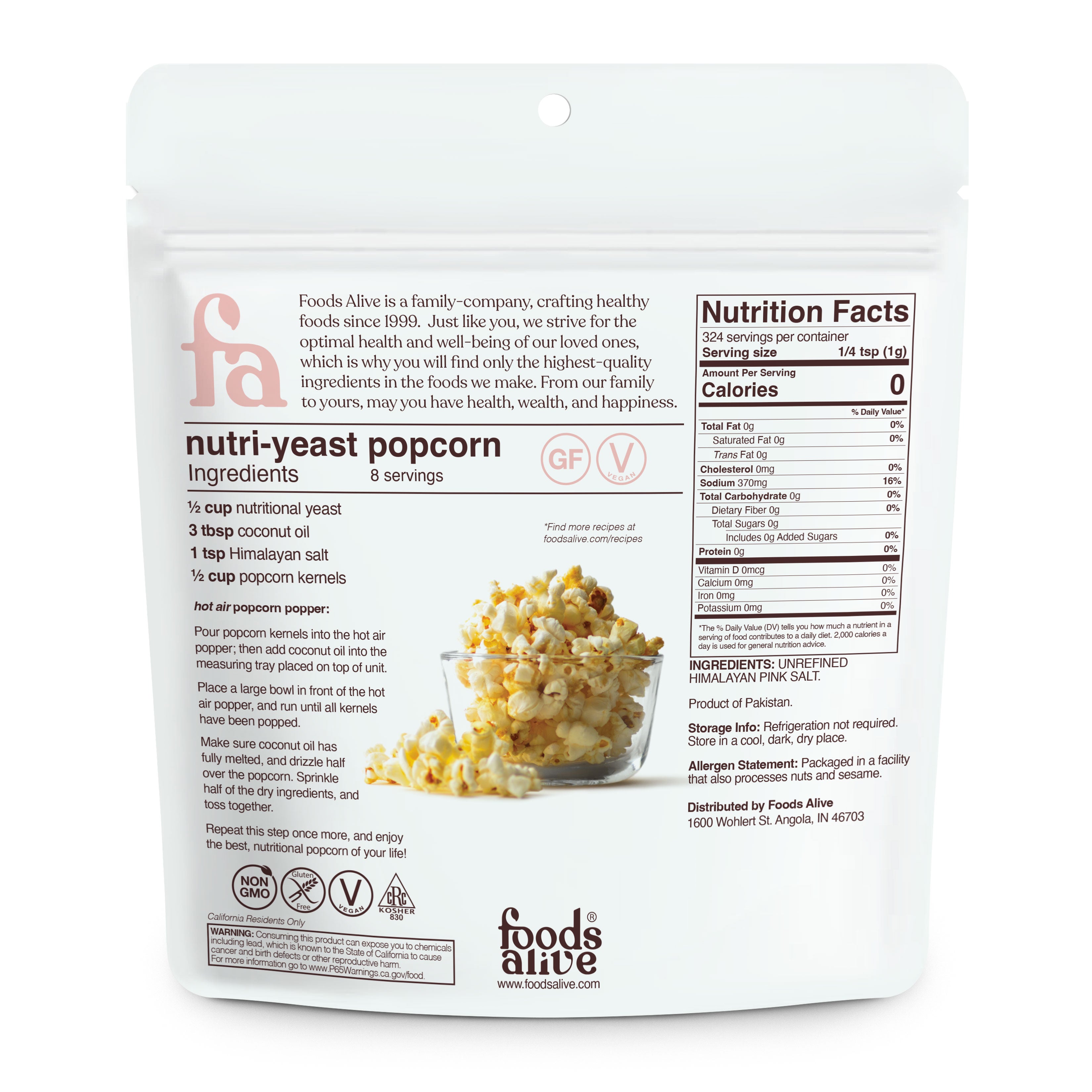
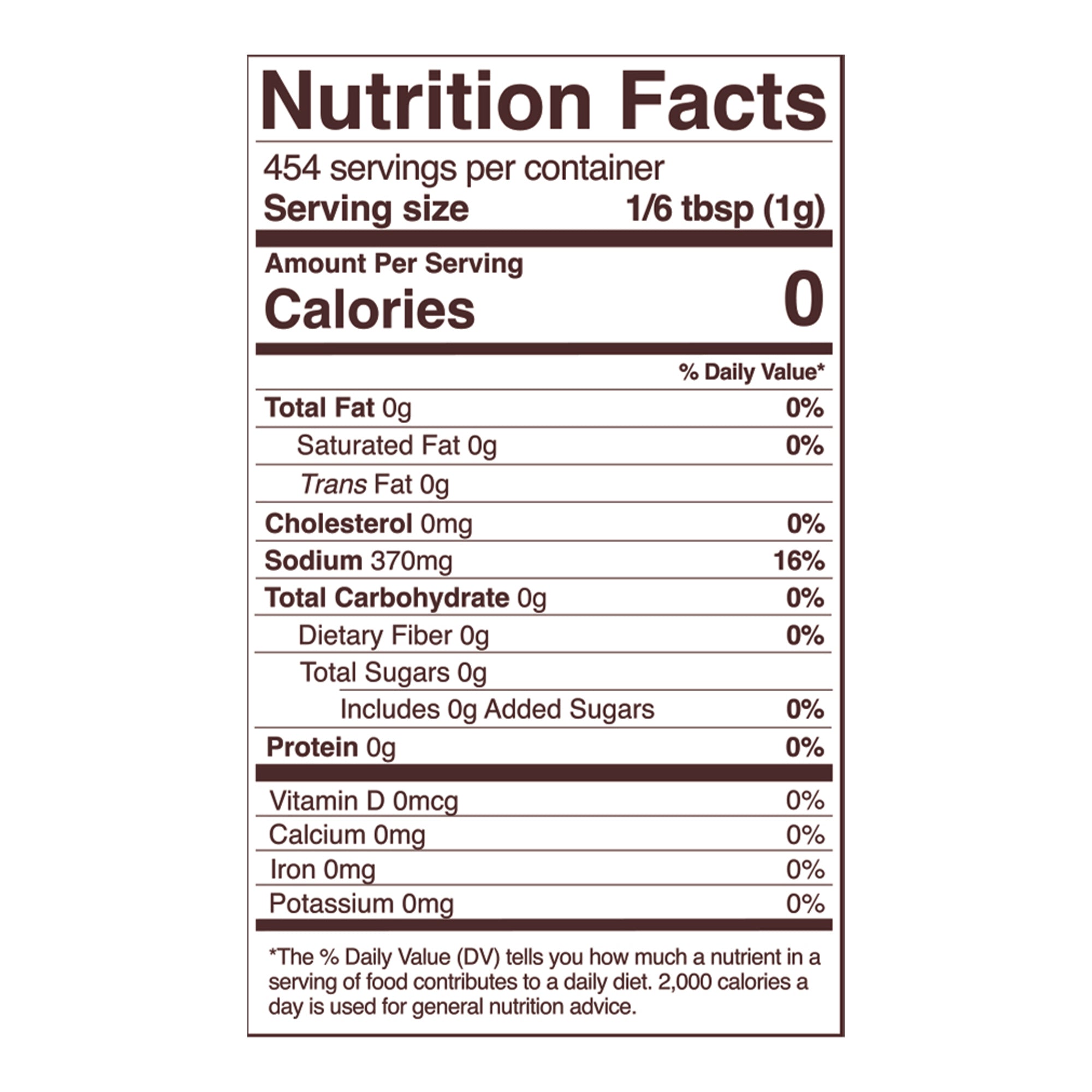
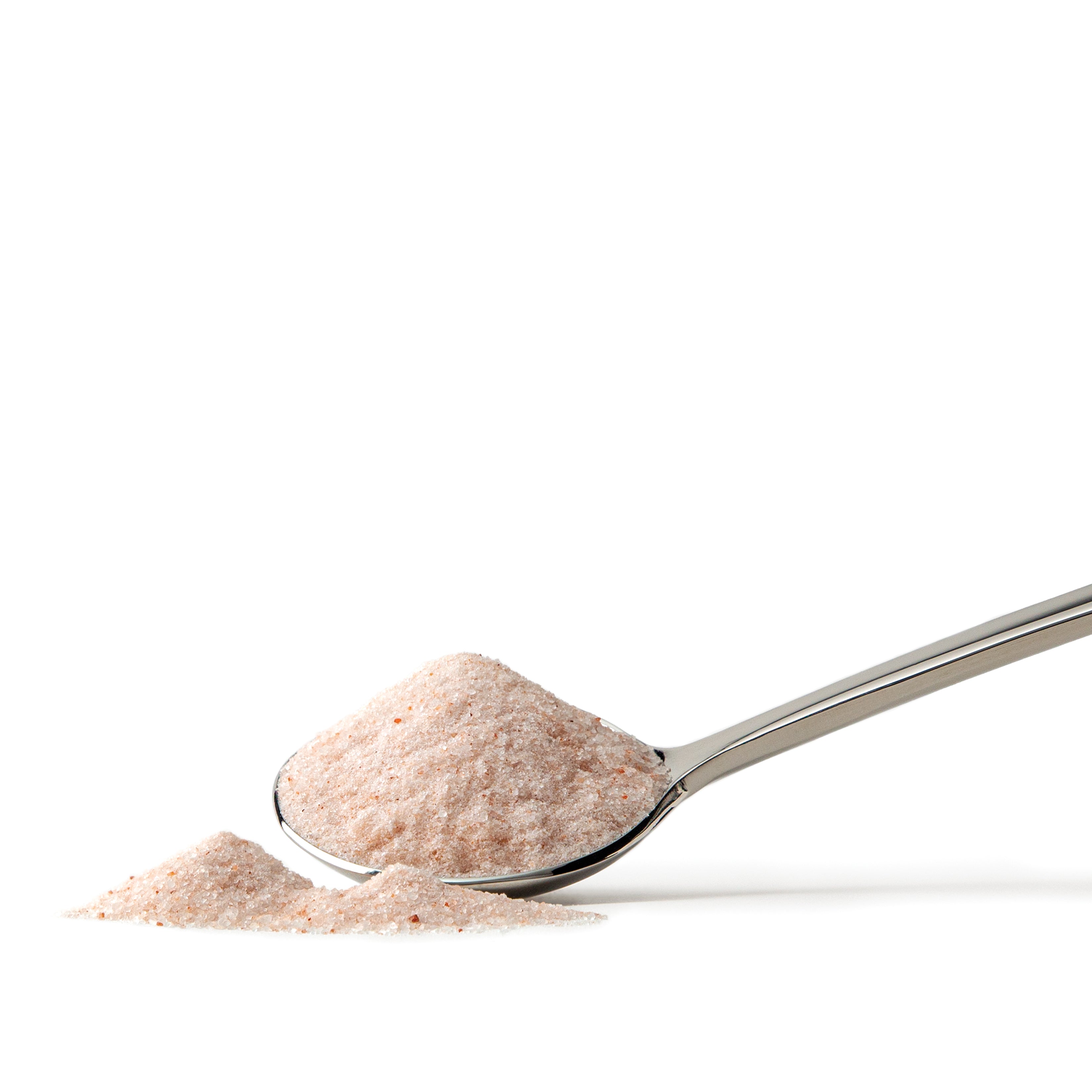
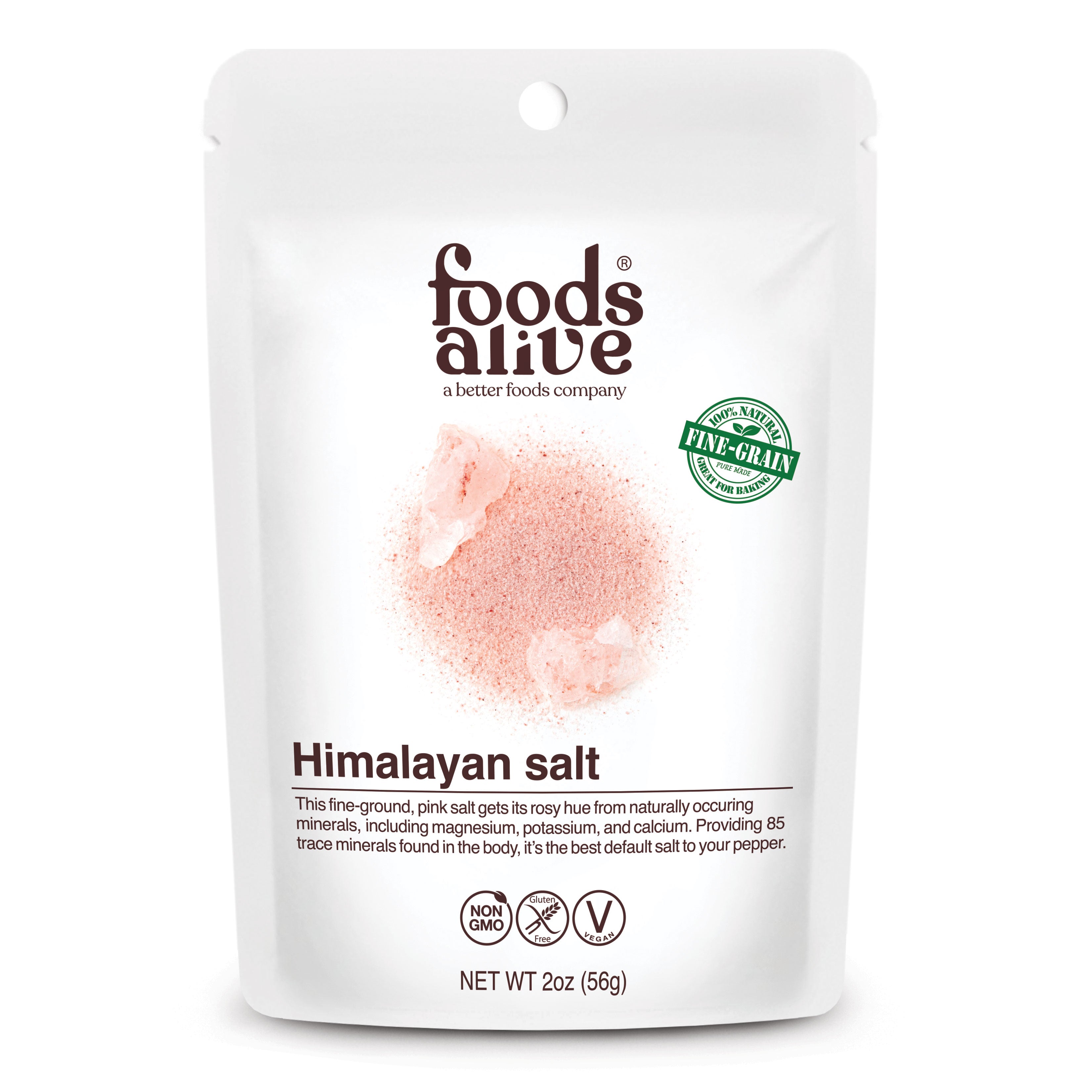
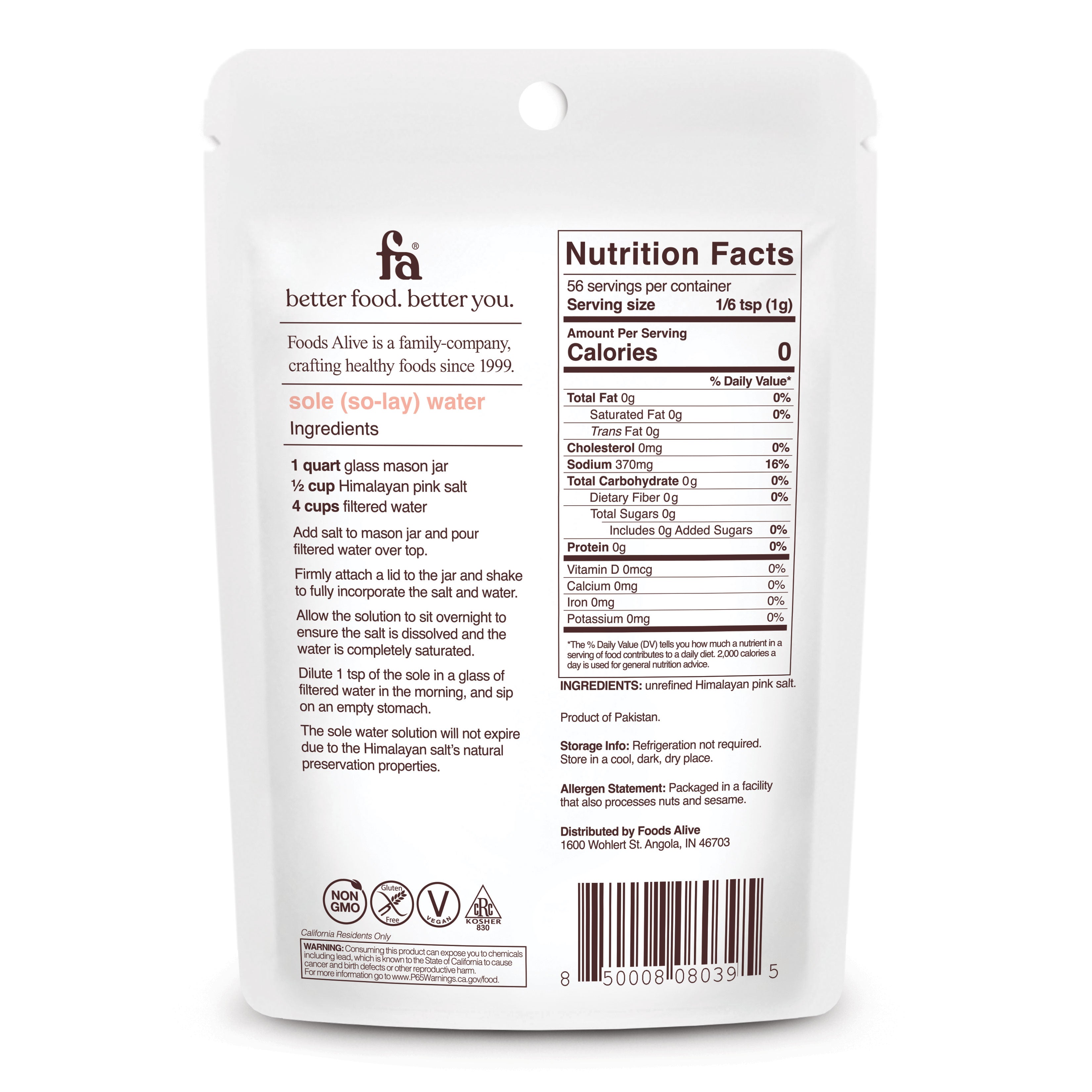
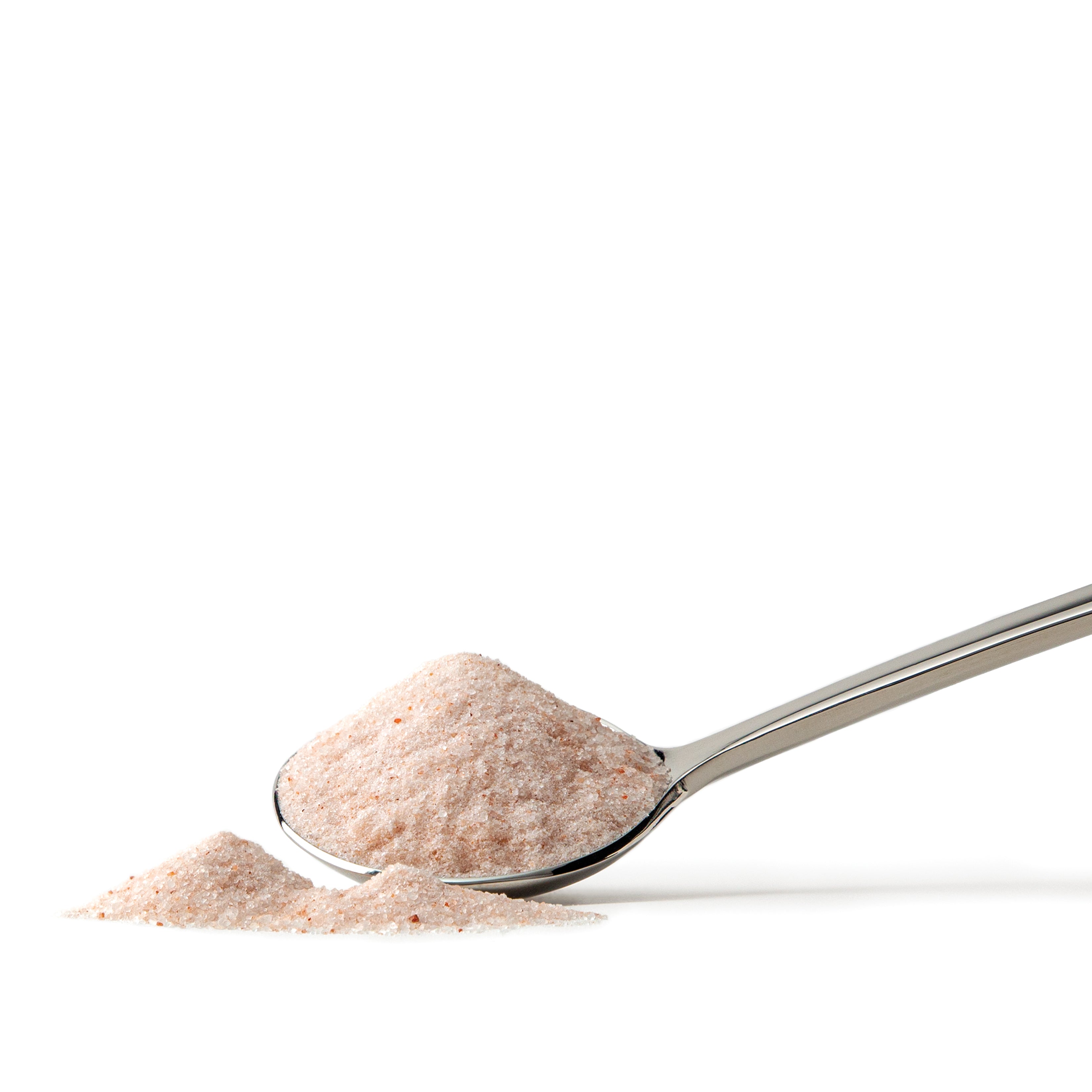

Here at Foods Alive, we like to keep things simple and transparent. That’s why we offer both a flat-rate and a free shipping option during the checkout process.
Shipping to Continental US (including Alaska, Hawaii, U.S. Territories and APO/DPO/FPO)
- $10 shipping on orders under $89
- FREE shipping on orders $89 or more— after any discounts/promotions are applied and before shipping charges or taxes are applied
- All orders are shipped either by USPS (1st Class, Ground Advantage, or Priority) or by UPS Ground. A customer’s preference for one shipping company over another is not always feasible, so we reserve the right to choose the best method of shipping at our own discretion.
International Shipping (outside of USA)
At this time, we are not able to ship to international addresses. If you are outside of the United States, you can order Foods Alive products through www.iherb.com. They carry most of our items and offer the best international shipping options around.
Returns, Refunds, Replacements
We accept returns for any reason on products bought directly from our website for up to 30-days after receipt. We will refund your purchase price, less return shipping charges, if you use our return label. We can not accept return requests after 30-days.
To request a return label, or if you need further assistance with your return, please contact us by filling out our return/refund form here.
Once we receive your returned product and it has been inspected, a credit via the original method of payment will be processed within 7 – 10 business days.
If you've purchased our products from a retailer and not directly from us on our website, you will need to reach out to the place of purchase to have your return or replacement processed.
If you have damaged product, please contact us for assistance by filling out our return/refund form here. Please note, that we may request an image of the damaged product.
Accurate Address Information
You are solely responsible for providing complete and accurate shipping and billing information at the time of purchase. All orders will be shipped to the address listed on the confirmation page. We are not responsible for inaccurate shipping and billing information after an order has shipped. If the shipping or billing information is incorrect, you will be responsible for any additional fees due to incorrect address information.
Damaged Packages
If your order is damaged, please contact us within one business day of receipt so that we can report it to the carrier for a damage claim. Please do not discard any packaging or product until all shipping issues have been resolved.
Lost Packages
If you suspect your package is lost or stolen, please contact us so we can work to resolve the issue. Also, just to be sure, please double-check the surrounding area where it could have potentially been delivered and with your neighbors. Lost packages must be reported within 30 business days to be eligible for a refund.
Returns
If a package is detained or refused by a country’s customs agency for any reason, a refund for the order will be credited to your account. The cost to return the package to Foods Alive and any charges incurred during delivery will be deducted from the refund. Shipping charges will not be refunded, as they are paid to the carrier and not to Foods Alive. The refund will be processed once the package is received by Foods Alive.
California Residents Only
WARNING: Consuming this product can expose you to chemicals, including lead, which is known to the State of California to cause cancer and birth defects or other reproductive harm. For more information go to www.P65Warnings.ca.gov/food
What is Prop 65?
Proposition 65 (Prop 65) is a California law formally known as the Safe Drinking Water and Toxic Enforcement Act, which was enacted in 1986.[1] It is a right-to-know law requiring the public to be informed when a substance on the Prop 65 chemical list is present above a very low threshold. The law is unique to California and is not a national standard related to health or safety. No other state has such a labeling regulation. In California, even if a product is safe, Prop 65 requires a consumer warning if it contains 1 of approximately 900 listed substances.[2]
Are Foods Alive products with a Prop 65 warning safe?
Short answer. Yes. It is important to understand that a Prop 65 warning simply informs a customer that any amount of lead or cadmium might be present in a product. Because we sell to retail customers in the state of California and some of our products contain a trace amount of lead or cadmium, we are required by the state of California to post Prop 65 warnings on our products.
This does not mean our products are dangerous. The label speaks to our dedication to transparency and making our customers aware that lead or cadmium might be present, even though the levels are extremely low. As for the majority of our products, the levels are so low they are unable to be measured with the equipment designed and intended to detect dangerous levels.
At Foods Alive, sourcing the highest-quality products and ingredients has been and will always be of our utmost concern. This includes ensuring that GMP-compliant and Prop 65-compliant practices, procedures, and testing protocols are in place for all of our products, as well as the ingredients that go into them. Rest assured, none of these elements are added by farmers or by Foods Alive.
Why is lead found in foods?
Widespread in nature and in soil, lead is found in low levels. Because these minerals, including cadmium and lead, are present naturally in the soil, they are absorbed by plants through their roots along with other nutrients. As a result, there may be unavoidable trace amounts occurring in virtually all foods, including fish, meats, grains, fruits and vegetables.
Many Prop 65—listed chemicals are naturally present in plants that are used as food. A perfect example is a compound known as safrole, a natural constituent of a number of spices such as nutmeg, cinnamon, anise, black pepper and sweet basil.
The Food and Drug Administration (FDA) and other health authorities have determined that tiny traces of naturally occurring minerals in foods are unavoidable and do not present a public health risk, threat of injury, or need for warnings. The FDA regularly monitors the amount of cadmium and lead in food and we ensure that our products safely pass any FDA regulations.
How is the limit for lead determined?
The warning level for lead is set by the California Office of Environmental Health and Hazard Assessment (OEHHA). The group identifies the level of exposure that has been shown to not pose any harm to humans or laboratory animals and then adds a large margin of safety.[3] more specifically, the “no observable effect level” is divided by 1,000 as the margin of safety. In other words, this margin of safety requires companies to use a warning if there may be an exposure that exceeds 1/1,000 of the no observable effect level (NOEL). Based on its NOEL, the warning level for lead is set at 0.5 micrograms. For context, a microgram is one millionth of a gram.
How does the Prop 65 lead level of 0.5 micrograms compare to levels of lead in food?
Prop 65 requires the warning for products sold in California that contain of 0.5 micrograms (mcg) of lead per maximum daily usage. The amount of lead in foods ranges from undetectable to over 0.5 mcg lead per serving. Some examples of foods with over 0.5 mcg lead per serving are shown here.
|
Selected foods reported to contain over 0.5 mcg of lead per serving ( average lead content in mcg) |
|
|
Baby food grape juice, 1/2 cup |
1.0 mcg |
|
Shrimp, 4 ounces |
1.0 mcg |
|
Fruit cocktail in light syrup 0.01 mcg/kg, 0.8 mcg/3oz |
0.8 mcg |
|
Milk chocolate candy bar, 3 oz |
0.9 mcg |
|
Pineapple canned in juice, 1/2 cup |
0.8 mcg |
|
Brownie, 3 oz |
0.8 mcg |
|
Chocolate syrup, 2 oz |
0.9 mcg |
|
Wine, red or white, 5-ounce glass |
0.9 mcg |
*Contaminants are often expressed in micrograms (mcg). When considering the levels of naturally occurring elements such as lead or cadmium found in food, it is helpful to put these units of measurement into perspective. How much is a Microgram (mcg)? A microgram is one/one-millionth of a gram. To put this unit into perspective, a penny weighs 2 grams. To get a microgram, you would need to divide the penny into 2 million pieces. A microgram is one of those two million pieces.
Do all Foods Alive products need a Prop 65 warning?
No, not all Foods Alive products need a Prop 65 warning.
The law requires that a warning is provided if a product meets two criteria: 1) it is sold in California and 2) it contains 1 or more of the nearly 900 substances that are included on the Prop 65 list.[5] The law specifically mandates that the level of a listed substance requiring a warning be significantly lower than the level at which any harm has been documented. In many cases, the substances in question occur at levels much too low to cause any measurable health effect, and there is often no known link between exposure to the substances at these low levels and any actual risk of cancer or reproductive harm.[6]
For example, the warning threshold for potential reproductive toxins is 1,000 times lower than the level found to cause no reproductive harm. In essence, if animal studies suggest that a human could consume up to 1,000 grams of a compound and still not experience any reproductive effect, Prop 65 requires a warning on a supplement containing just 1 gram or more of the compound.
How is Proposition 65 enforced?
Prop 65 is enforced through lawsuits brought by a state attorney general, district or city attorneys, or private plaintiffs. A plaintiff does not need to show that anyone has been hurt in order to bring a lawsuit.
Proposition 65 has a “citizen-suit” provision meant to pay for itself and not require funding from the legislature. To add incentive to California citizens to police Prop 65, when a citizen (or private enforcer) brings a lawsuit against a company, they are awarded a payment equal to 25% of the Civic Penalty settlement imposed on the manufacturer.
These individuals and law firms may not have to prove that they have been injured in any way by whatever violation of Prop 65 they are claiming. Prop 65 allows lawyers and individuals to bring suits against companies and put the burden of truth on the manufacturer. Due to the high costs of litigation, most of these lawsuits settle of court and never make it to trial, In 2016, businesses paid $30.1 million in Prop 65 settlement payments. Of that total, 72% ($21.5 million) went to attorney’s fees.
Example settlement of $100,000: Approximately $72,000 would go to attorney fees and $28,000 would go towards the Civic Penalty. Of that $28,000 Civic Penalty, $7,000 would go to the private individual filing the lawsuit and $21,000 would go to the Office of Environmental Health Hazard Assessment. You can view the 2016 Prop 65 Settlement Summary here.[7]
The financial toll Prop 65 settlements and verdicts extract have run some companies into the ground and forced some to stop selling in California, even when the products they sell are safe and do not cause an exposure that requires a warning. Many, possibly the majority, of Prop 65 matters are settled to avoid the cost of litigation and expert fees, which are almost always in the tens of thousands of dollars. This happens even when there is no exposure to chemicals that require warnings. Many, like Foods Alive, are placing warnings on products as a prophylactic measure to avoid the risk lawsuits and their exorbitant, inescapable costs.
Our Prop 65 journey
We respect the regulations that the State of California has implemented and while not required, we have made the decision to include the warnings on products sold outside of California to empower all of our customers with this knowledge.
Rather than face more unscrupulous lawsuits, Foods Alive prefers to comply with Prop 65 by: (1) providing warnings where there are detectable levels of trace amounts of listed chemicals; or (2) limiting the serving size for California residents to avoid any warning requirement; or (3) placing the Prop 65 warning on all of our products. We strongly believe that any minute levels of the chemicals listed by Prop 65 in our products should be exempted under the “naturally occurring allowance” exception.
Attorney Fees
Cacao Powder: 2016
Attorney fees: $34,000
Settlement Cost: $9,500
Plaintiff Attorney fees: $24,000
Total cost: $67,500
Mexican Harvest Flax Crackers: 2022
Still pending
Attorney fees to date (Foods Alive attorney only): $57,000
_________________________________________________________________
[1] https://oehha.ca.gov/propositon-65/proposition-64-faqs
[2] https://oehha.ca.gov/proposition-65/proposition-65-list
[3] California Health and Safety Code, Chapter 6.6, section 25249.10(c)
[4] https://www.fda.gov/downloads/Food/FoodScienceResearch/TotalDietStudy/UCM184301.pdf
[5] https://oehha.ca.gov/proposition-65/proposition-65-list
[6] https://oehha.ca.gov/proposition-65/proposition-65-faqs
[7] https://oag.ca.gov/sites/all/files/agweb/pdfs/prop65/2016-summary-settlements.pdf
The products and claims made about specific products on this website have not been evaluated by the USDA and are not approved to diagnose, treat, cure or prevent disease. The information provided here is for informational purposes only and is not intended as a substitute for advice from your physician. Before undertaking any change in lifestyle or diet, we urge you to seek the guidance and services of qualified, licensed health professionals.


